antiZionism is antisemitism
rabbi Sacks: Sukkot: Festival of overflowing joy. page 16.
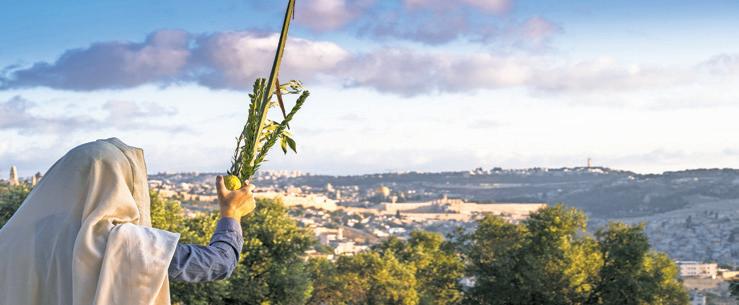
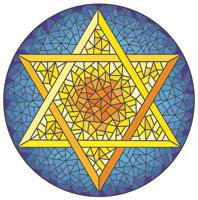
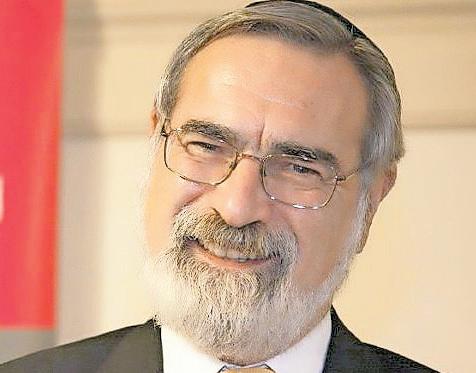
Glick: Bibi and MBS making a deal. page 20.

rabbi Sacks: Sukkot: Festival of overflowing joy. page 16.



Glick: Bibi and MBS making a deal. page 20.

The Oslo Accords, now 30 years old, began with great hopes but swiftly descended into a bloody stalemate of Palestinian terror, Israeli overtures for peace and more Palestinian terror.
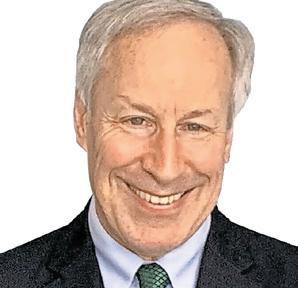
If one asks what needs to change in order to find a viable off-ramp, an answer emerges: A new and thoroughly de-Nazified Palestinian leadership.
Strong words perhaps, but history confirms it.
Since the 1930s, the pre-state Zionist community and then the State of Israel sought to share their indigenous homeland with their Palestinian Arab neighbors. For just as long,
Analysis by Lt. Col. (res) Maurice Hirsch
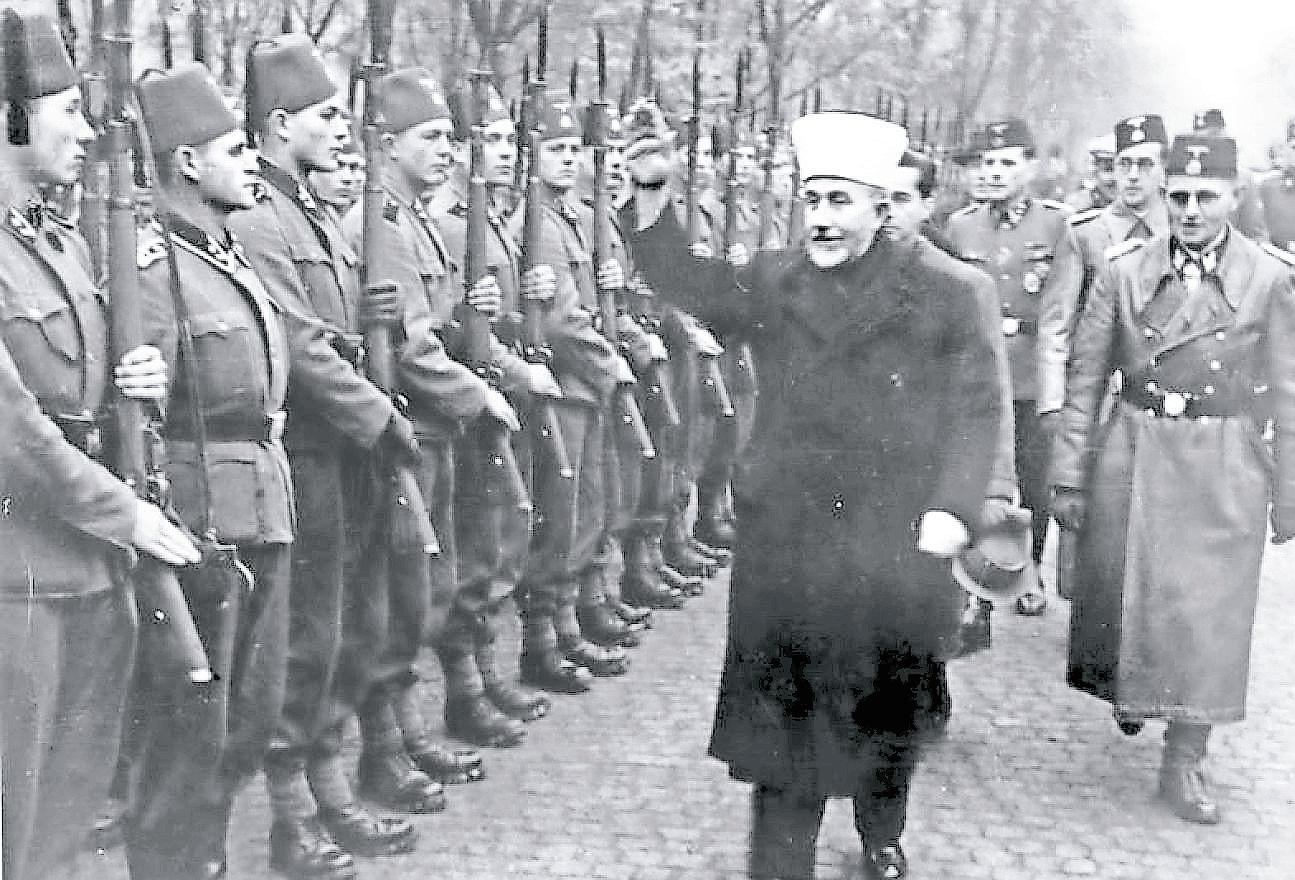
Senior Researcher, Israel Defense And Security Forum
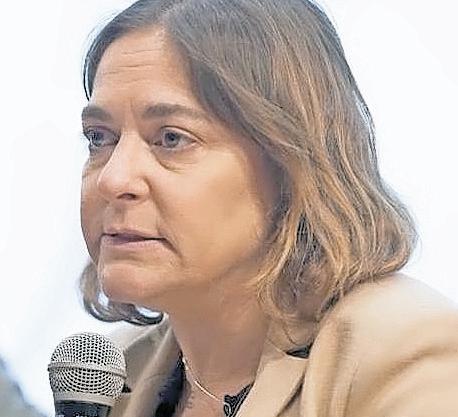
Palestinian leader Mahmoud Abbas (Abu Mazen) is 87 years old. When he leaves the political scene, will Israel be able to continue supporting the Palestinian Authority, or even influence who stands at its head?

Speaking in a closed session of the Foreign Affairs and Defense Committee in Israel’s Knesset, Israeli Prime Minister Benjamin Netanyahu seemed to answer the question affirmatively, saying, “We are preparing for the day after Abu Mazen. We need the Palestinian Authority. We can’t let it collapse. We don’t want it to collapse, either. We are ready to help it financially. We have an interest in the PA continuing to work. Where it manages to operate, it does the work for us, and we have no interest in it falling.”
Israel’s ability to maintain the PA depends significantly on the identity of Abbas’s successor, and
By Orit Arfa, JNS
For most Jews, a sukkah conjures a booth with canvas or wooden walls, and bamboo or some sort of foliage on top as schach. Sarah Sassoon, 42, had a very different experience. The sukkahs that her Iraqi-born father made were composed mostly of palm tree branches — both walls and schach That and other Iraqi-Jewish traditions can offer hints of what Judean practices were like 2,000 years ago, according to Sassoon. Iraqi Jews, or “Babylonian Jews,” as she prefers to call them, are the closest geographically and historically to the exile of the Kingdom of Judah to Babylon in the late sixth century BCE.
“Palm trees are such a deep symbol,” including on ancient Judean coins, Sassoon told JNS. From a young age, she was interested in her Iraqi roots, and she clung to her grandmother’s side as the latter cooked and baked Iraqi delights.
When she made aliyah from Sydney eight years ago and

Continued from page 1
interacted with more Iraqi Jews, she made it her mission to rediscover, animate and immortalize those traditions and to demonstrate that Iraqi Jewish life is about more than just foods like kubbe and sabich
“They were an ancient Jewish community, with a richness and with customs that go back all the way to talmudic times and Temple times,” Sassoon said. “It’s a community that every Jew actually should know about and belong to because every Jew went through Babylon into the Diaspora.”
While many Jews are familiar with the Babylonian Talmud, they might not know that modern Iraq is home to what some believe is the tomb of the biblical scribe Ezra, who led Babylonian Jews to Jerusalem to build the Second Temple.
On Sukkot, Jews used to visit the shrine (Ezra’s Tomb) in Al-Uzair, outside of Baghdad. Local Muslims have painted the shrine green — a color sacred in Islam — though Hebrew inscriptions remain visible on the site, she has heard from local Iraqis.
One-third of Baghdad’s population was Jewish in 1917, and Jews held top political, business and cultural positions, according to Sassoon, who hails from a prominent Iraqi Jewish family. Her great-great-grandfather, Moshe Chaim Shamash, was chief rabbi (hakham bashi) of Iraq from 1918 to 1923, and mediated between the Jewish community and political leaders. Her maiden name is “Harkham,” which derives from chacham, Hebrew for “sage.”
Modern Iraqis, whom Sassoon has met on social media, tell her that her grandparents’ generation misses the Jews. According to reports, less than a handful of Jews live in Iraq today; however, Sassoon says there are Jews there who hide their identity, as well as Jewish converts to Islam.
“They really were very integrated,” Sassoon said of Iraq’s past Jewish population. “They were very much part of Iraqi society. It was as if
American Jews suddenly left overnight.”





Sassoon’s award-winning children’s book, Shoham’s Bangle (2022), dramatizes Jewish flight from Iraq during the foundation of the modern State of Israel through the eyes of a young Jewish girl.
Shoham is fascinated by her Nana (grandmother) Aziza’s golden bangles, bracelets worn by Iraqi Jewish and Muslim women. Shoham is sad to leave the heirlooms behind, but it turns out that her sense of loss may have been premature.
Sassoon, who penned the book — her first for children — in a writers’ workshop in Jerusalem, found that success came quickly and unexpectedly. The protagonist of her second and forthcoming children’s book, “This Is Not a Cholent,” is tibit, the Iraqi-Jewish version of cholent made with rice and chicken. She is also working on a novel about a young Jewish woman growing up in Baghdad in the shadows of the 1941 Farhud massacre, in which thousands of Jews were murdered, injured or dispossessed of their property. The more she tells the stories of the women
of her grandmother’s generation, the more Sassoon paradoxically deviates from their experience. Many Iraqi women were illiterate housewives, she told JNS.
But a seed of what one might call feminist empowerment may have been planted on the holiday of Hoshanah Rabbah, the last day of Sukkot. Iraqi women pulled all-nighters with the men, studying Torah and other sacred texts in the sukkah.
The women multi-tasked in the back of the sukkah, making and shaping a risotto-like pasta called sha’ariya.
“It’s fascinating to think the women used to learn with the men in that way,” Sassoon said. “That they’d overhear the learning and also be a part of it. And the next day, they’d cook the pasta pieces.”
Sassoon is dedicated to recreating Iraqi traditions, but some aren’t feasible. She loves the idea of studying Torah in the sukkah with men, but making sha’ariya “is beyond me,” she said.
She also has had difficulty tracking down the chrai used for Shabbat candle-lighting, which she thinks must have been the way Jews lit Shabbat candles in talmudic times.
“It’s a glass bowl held up by three silver chains. Inside is water and sesame oil, with seven wicks attached to cotton wicks, and they light seven of those for the Friday-night candles,” she told JNS. “There’s no such thing as Iraqi Jewish candlesticks. I always wondered — Why didn’t my grandmother have silver candlesticks?”
On Sukkot, Iraqi Jews light the chrai every night to welcome the seven “founding fathers” of the Jewish people, known as ushpizin, who “visit” sukkahs each night of the eight-day holiday.
Sassoon will decorate her sukkah with palm tree branches and hang fresh pomegranates like her forebears. For now, though, she’ll use the candlesticks that her Czech mother-in-law gave her.
 A seasonal sukkah on view at the Babylonian Jewry Heritage Center in Or-Yehuda, Israel. Babylonian Jewry Heritage Center
A seasonal sukkah on view at the Babylonian Jewry Heritage Center in Or-Yehuda, Israel. Babylonian Jewry Heritage Center
At Zareinu, schools in Far Rockaway and the Five Towns unite in a singular, sacred mission—to give students with learning differences the chance to thrive alongside their peers.
OUR UNIQUE MODEL OFFERS
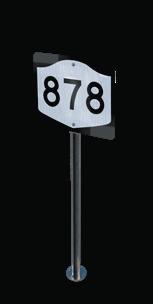
Opportunities for integration into the mainstream environment
MEMBER SCHOOLS
Bais Yaakov Ateres Miriam
Bais Yaakov of the Five Towns

Bnos Bais Yaakov
Shulamith School for Girls
Hand-picked, highly trained teachers who work with each student as an individual
Torah Academy for Girls (TAG)
Yeshiva Darchei Torah
Yeshiva Ketana of Long Island
Yeshiva Toras Chaim at South Shore
Rabbi Justin Lepolstat, MS
Naomi Nadata, MS Program Directors
Alice Feltheimer, MS Educational Coordinator
PRESIDIUM
Yehuda Biber
Alon Goldberger
Chesky Newman
Research-based interventions that address individual challenges
HELPING EVERY CHILD BLOSSOM ZAREINU FOR MORE INFORMATION PLEASE CALL 718-406-8343 VISIT
Continued from page 1
the Palestinian Arab leadership has relentlessly sought to prevent and then destroy any manifestation of Jewish sovereignty in that homeland while indoctrinating its people in genocidal Jewhatred.
It is not widely known that, even through the 1930s, many Arab leaders, including three out of five Palestinian-Arab political parties, favored negotiations with their Jewish neighbors and were open to considering “two states for two peoples.”
One man shattered this emerging amity: The Grand Mufti of Jerusalem Haj Amin al-Husseini. A notorious antisemite, Husseini was appointed Mufti by the British authorities in 1921 over two more moderate candidates. He spent the 1920s and 1930s inciting pogroms via vicious antisemitic propaganda, falsely claiming the Jews sought to destroy Muslim religious sites and exterminate the Arabs.
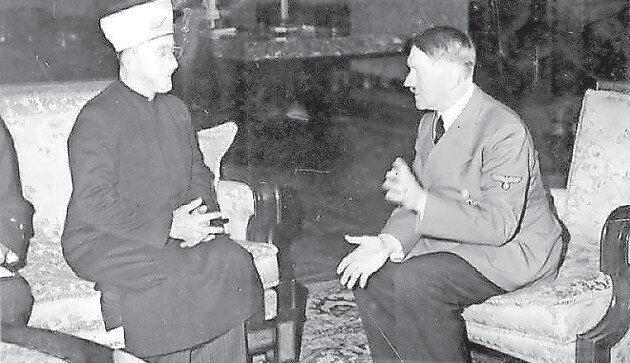
Husseini eventually instigated a 1936–1939 civil war in Palestine, targeting not just the British and the Jews, but also the many Palestinian Arabs who favored cooperation with their Jewish neighbors. Husseini had many of the latter viciously tortured and murdered, leaving their shattered bodies in public as a warning to moderate Palestinians.
Having emptied his community of moderate voices, Husseini filled the void with the ideology of Europe’s rising Nazi empire.
Several historians have documented the Mufti’s leading role in bringing about an ArabNazi alliance during World War II. Husseini moved to Berlin in Nov. 1941, where he and Hitler publicly reached an accord. They jointly pledged to conquer the Middle East, annex it to the Nazi empire and build death camps to exterminate all the Jews. That this second Holocaust did not happen is owed entirely to the British-American defeat of Hitler’s North African armies in 1943.
Husseini also spent those years poisoning the Middle East’s political discourse as a leading adviser to the Nazi’s massive propaganda campaign across the region.
Husseini’s efforts were effective: An American intelligence dispatch from Aug. 1942 reported “three-fourths of the Muslim world are in favor of the Axis,” crediting “radio talks from the Grand Mufti” directing Arabs to “murder the Jews and seize their property.”
Husseini’s twin legacies of inciting Jew-hate and silencing Palestinian moderates were embraced in 1968 by the PLO’s new leader Yasser Arafat. They continue today under Arafat’s successor Mahmoud Abbas, who praisedHusseini as “a great man whose ways should be emulated by all [Palestinian Authority] Arabs.”
As abundantly documented by NGOs like Palestinian Media Watch and Impact-se, Palestinian schools, summer camps, TV shows and newspapers relentlessly disseminate antisemitism much like that of Nazi Germany.
This propaganda works. As countless video recordings demonstrate, after each successful terror-murder of one or more Israelis, Palestinian communities erupt in public celebrations, with

dancing in the streets, fireworks, firing of weapons and handing out candy to children.
Crucially, the Nazification of the Palestinian leadership and society since the 1930s has never been reversed. This helps explain the long history of failed peace efforts, which include at least nine attempts to give the Palestinians a state west of the Jordan River or to commence negotiations towards such a result.
This history demonstrates that, like all the other failed peace efforts, Oslo was doomed from the outset because of a fundamental difference between the parties to it. On one side stands Israel, which has shown time and again that it is ready to make peace by giving up lands it holds dear. On the other side stands the Palestinian leadership, driven by a Nazified ideology that seeks to destroy Israel.
The lesson of this painful history should be clear: Peace is impossible unless and until there is a total de-Nazification of all leading Palestinian institutions. The PA’s leadership, government agencies, media, schools and mosques must give up their Nazified ideology and replace it with the values of peaceful coexistence.
Can this be made to happen? And if so, how?

It cannot happen without the application of powerful, game-changing pressure. Abbas and his autocratic clique will never voluntarily relinquish their annihilationist ideology, which is too deeply embedded in Palestinian national identity for it to dissipate naturally.
There are two options for applying such pressure. Option one is military conquest and occupation, akin to the Western Allies’ transformative occupation of postwar Nazi Germany. Option two would combine conditional aid suspensions, enhanced counterterror efforts, targeted media disruptions, insistence on educational reforms and proactive support for moderate Palestinian leaders.
Israel is unlikely to make the costly efforts required by option one, especially given the powerful opposition certain to come from the U.S. and other allies. At least for now, option two is the only viable choice.
Option two cannot be effectively implemented by Israel alone. The essential component of aid suspensions requires buy-in from America and Europe. Europe will resist such a policy, as will the Biden administration. This contrasts with the Trump administration, which suspended aid under the Taylor Force Act.
In sum, the options for ending the Oslo stalemate are limited and likely on hold pending a Republican administration in the White House. But it is not too soon to begin fashioning a serious game plan that might finally end the Palestinians’ century-long war to annihilate Israel. Israel deserves an end to this war and so do the Palestinian people, who have long been treated as little more than cannon fodder by their corrupt and autocratic rulers.
As a result, for the sake of both Israelis and Palestinians, a coordinated strategy designed to replace the annihilationist Palestinian leadership should be at the top of any serious peace agenda.

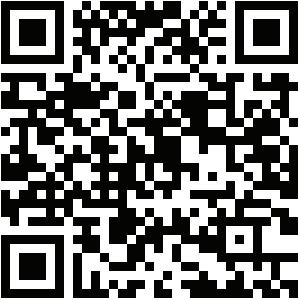
From Parker Jewish Institute
Dementia is a progressive neurological disorder characterized by a decline in cognitive abilities, memory loss, and changes in behavior.
The cognitive decline and memory loss experienced by individuals with dementia can lead to confusion, frustration, and difficulty in performing everyday tasks. This can result in social isolation and withdrawal from community activities, as individuals with dementia may feel overwhelmed or embarrassed by their symptoms.
In an increasingly aging population, the importance of creating dementia-friendly communities cannot be overstated. A dementia-friendly community — like the one at Parker Jewish Institute, in New Hyde Park at the Queens-Nassau border — promotes a sense of belonging, reduces social isolation, and enables individuals with dementia to participate in community activities with confidence.
For individuals with dementia, a dementia-friendly community provides a sense of belonging and support, which can greatly improve their overall well-being.
Some of the key benefits include:

1. Reduced social isolation: Individuals with dementia often face social isolation due to the stigma and misunderstanding surrounding their condition. In dementia-friendly communities, individuals with dementia can feel more connected, supported, and included in community activities.
2. Enhanced quality of life: By providing support and understanding, dementia-friendly communities can help individuals with dementia to maintain their independence, engage in meaningful activities, and enjoy a sense of purpose and fulfillment.
3. Empowerment and independence: Dementia-friendly communities empower individuals with dementia to make choices and decisions about their lives.
4. Reduced caregiver burden: Dementia-friendly communities not only support individuals with dementia but also their caregivers, with resources, education and support.
Here are some key resources for individuals and organizations interested in creating dementia-friendly communities:
1. Parker’s Willing Hearts, Helpful Hand Program provides a wealth of resources, information, and support for individuals with dementia and their caregivers. They offer educational materials, support groups, and access to local resources.
2. Dementia-friendly community networks connect individuals, organizations and businesses interested in creating dementia-friendly communities.

3. Dementia-friendly training programs provide education and training on creating dementia-friendly environments. These programs offer insights into dementia, communication strategies, and practical tips for creating inclusive spaces.

4. Community organizations such as senior centers and healthcare providers offer resources, support and programs for individuals with dementia and their caregivers.
By utilizing these resources and seeking support, individuals and organizations can gain valuable insights, guidance, and practical tips for creating dementia-friendly communities. The journey towards creating a dementia-friendly community can be challenging, but with the right support and resources, it is a journey that can transform lives and communities.
As the global population ages, the importance of dementiafriendly communities becomes increasingly evident. By creating spaces and services that are inclusive and accommodating to individuals with dementia, communities can empower them to live their lives to the fullest. Dementia-friendly communities promote awareness, understanding, and compassion, and strive to eliminate the stigma associated with dementia.
Creating dementia-friendly communities offers numerous benefits for individuals with dementia, their families, and society as a whole. These communities enhance the well-being and quality of life for individuals with dementia, reduce social isolation, and provide support and resources for their caregivers. Furthermore, dementia-friendly communities foster awareness, understanding, and acceptance of dementia, leading to a more compassionate and inclusive society.
Through education, collaboration, and the implementation of dementia-friendly practices, Parker’s Willing Hearts, Helpful Hands Program is helping communities create environments that are respectful, supportive, and empowering for individuals with dementia. By engaging community members, and utilizing available resources and support, we are helping communities build a future that is inclusive, supportive, and compassionate for people living with dementia.
Creating dementia-friendly communities is not just a responsibility, but an opportunity to make a positive difference in the lives of individuals with dementia and their families. Together, we can build a better future for individuals with dementia.
For learn more, call Parker at 516-586-1507 or 631-617-2864.

At Episcopal Health Services, we recognize that women’s health needs are unique. That is why we offer comprehensive services including:
• Obstetrics & Gynecology
• Maternal-Fetal Medicine
• Gynecology-Oncology
• Breast Surgery
• Urogynecology
• 3-D Digital Mammography
• Diagnostic Ultrasounds
• Breast Biopsy Procedures
• Bone Density Testing
• Nutrition Services
At Episcopal Health Services, we recognize that women’s health needs are unique. From gynecology, pregnancy, childbirth, maternal fetal medicine, and urogynecology, our physicians approach health care with each patient’s specific needs in mind. New patients are welcomed and same-day appointments are available!*


Our physicians approach healthcare with each patient’s specific needs in mind. New patients are welcomed and same-day appointments are available!*
To schedule an appointment online visit ehs.org/obgyn or call 718-869-7500
To schedule an appointment online visit ehs.org/obgyn or call 718-869-7500
*Same day appointment availability not guaranteed.
*Same day appointment availability not guaranteed.
 EThEl G. hoFMAN
EThEl G. hoFMAN
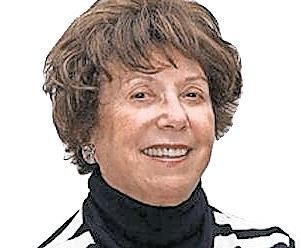
Sukkot is akin to a Jewish Thanksgiving. On Thanksgiving in America, no matter religion or background, families and friends come together to celebrate the arrival of the Pilgrims at Plymouth, Mass., and to feast on a late harvest of autumn fruits and vegetables. It takes place indoors with family gathered round a table groaning with dozens of traditional heavy and belly-filling dishes.
In contrast, during the eight-day Jewish holiday of Sukkot (seven days in Israel), family and friends are invited to eat outdoors in the sukkah, harkening back to ancient times when farmers built flimsy booths for shelter while bringing in the harvest, and serving as a reminder of the 40 years traveling in the desert on the way to the Promised Land.
There is also the tradition of shaking the lulav and etrog and welcoming special guests (ushpizin) into the sukkah.
Decorations can be simple or elaborate. When my boys were young, we schlepped to Lancaster, Pa., to gather corn stalks and branches to spread loosely over a roof trellis so that stars could be seen at night (as religiously required) but still provide shade during the day.
This year, the cooler early-October weather may limit visitors in the form of bees and bugs, but also be sure to add some fleece throws in the sukkah to keep cozy.
The dishes that follow can be served outdoors, cold or at room temperature. All can be made ahead of time.
Cook’s Tips: • Half-and-half may substitute for evaporated milk. • Cinnamon or nutmeg for pumpkin spice. • Snip fresh herbs with scissors.
• Pre-cut mango and diced bell peppers are available in markets. • Buy a chunk of cooked chicken from the deli for the Waldorf Salad.
• Ginger root may be frozen. Easy to grate as needed. • Keep a supply of thin latex gloves on hand. Use to toss salads and vegetables. • Fruit tarts should be tightly wrapped and frozen. Remove from the freezer 4 to 6 hours ahead of time; let cool at room temperature. Warm in a preheated 325-degree oven.
Serves 6 to 8
Made in a jiffy. No need to peel pears. Just place all ingredients in blender and give it a whirl.
Ingredients:
• 4 large ripe pears, cored and cut up coarsely
• 2 cups apple juice
• 1 cup canned evaporated milk
• 1/4 tsp. pumpkin spice
• 1 Tbsp. finely grated orange peel
• Orange wedges to garnish (optional)
• Directions:
Place all ingredients, except orange wedges, in a blender jar or food processor. Whirl until almost blended (let some tiny chunks remain). If too thick, add a little more apple juice. Chill. Garnish with an orange wedge
Serves 8
I watched and ate as this was prepared by women in the Tunisian village of Zagabouan. Roasted peppers and tomatoes are topped with tuna and hard-cooked eggs. Serve with thick sliced challah; it’s irresistible!
Ingredients:
• 2 large bell peppers, green and yellow, seeded and cut in ½-inch strips
• 3 large tomatoes, quartered
• 3 Tbsp. olive oil
• 1 Tbsp. cumin
• 1-1/2 tsp. garlic powder
• Salt and freshly ground pepper to taste
• 2 (6 oz.) cans tuna, well-drained
• 3 hard-cooked eggs, quartered
• 1 lemon, thinly sliced
Directions:
Preheat the broiler. Place the peppers and tomatoes on a baking sheet. Toss with the olive oil, cumin and garlic.
Place under broiler, 5 to 6 inches from heat. Broil until skins are beginning to brown. Watch carefully. Remove from broiler and set aside. When cool enough to handle, place in food processor. Pulse to chop very coarsely.
Season to taste with salt and pepper. Transfer to a serving dish. Flake the tuna and scatter over top. Garnish with eggs and lemon. Serve at room temperature.
Serves 8
For vegetarians, a satisfying appetizer or main dish.
Ingredients:
• 4 large Portobello mushrooms
• 1/4 cup olive oil
• 5 to 6 pitted black olives
• 3/4 cup breadcrumbs
• 1/2 cup grated Parmesan cheese
• 1/4 cup finely snipped fresh parsley
• 3 Tbsp. olive oil
• Salt and pepper
• 4 oz. mozzarella cheese, thinly sliced
Directions:
Preheat oven to 400 degrees. Rinse the mushrooms in cold water. Pat dry with paper towels. Remove stems and set aside.
Brush mushroom caps generously with olive oil. Place on a baking sheet and bake in a preheated oven for 10 minutes. Remove and set aside.
Place mushroom stems and olives in the food processor. Pulse to chop coarsely. Transfer to a bowl. Add the remaining ingredients except the mozzarella cheese, Spoon mixture, dividing equally, onto mushroom caps. Sprinkle lightly with salt and pepper. Top with mozzarella cheese.
Bake in preheated oven 6 to 7 minutes, or until cheese is melted and beginning to brown.
Cut in half before serving warm or at room temperature. Do not serve hot — hot cheese can stick to mouths causing severe burns.
Serves 6
Oscar Tschirky, a Swiss immigrant, is credited with creating the Waldorf Salad in 1893, which has now become a piece of culinary Americana. For a quick version, I shred the chicken instead of dicing it (or buy it already prepared in chunks). And don’t even bother to peel the apple.
Ingredients:
• 3/4 cup mayonnaise
• 2 Tbsp. seasoned rice vinegar
• 1-1/2 cups cooked chicken, shredded
• 1 Granny Smith apple, cored and cubed
• 1-1/2 cups diced mango
• 1/2 cup seedless red or green grapes, halved
• 1/2 cup diced green and yellow bell peppers
• 1/2 cup dried cranberries
• 1/2 cup pecan halves
• 2 tsp. dried dill
• Arugula garnish (optional)
Directions:
In a small bowl, combine the mayonnaise and rice vinegar, mixing until smooth. Set
aside.
In a large bowl, mix all the remaining ingredients. Pour the mayo mixture over top, stirring to moisten evenly. Chill.
To serve: Line a large platter or bowl with arugula. Spoon the chicken mixture over or serve in arugula to lined individual salad bowls.
Serves 8 to 10
No need to roll out this rich, crusty dough tenderized with vinegar. Just mix and press into pan. Tuck in fresh figs, drizzle with honey and bake. (Six fresh plums, stoned and cut into ½-inch wedges, may be substituted for the figs).
Ingredients:
• 1 stick (4 ounces) butter, melted
• 1 Tbsp. white vinegar
• 1/2 cup sugar, divided
• 1-1/4 cups, plus 2 Tbsp., all-purpose flour
• 1 Tbsp. grated fresh ginger
• 12 to 15 fresh figs, stems removed and halved
• 3 Tbsp. water
• 1 to 2 Tbsp. honey, warmed
Directions:
Preheat oven to 350 degrees. In a medium bowl, mix the butter and vinegar.
With a wooden spoon, blend in 2 Tbsp. of the sugar and 1-1/4 cups flour to make a smooth dough. Press into the bottom and sides of a 10-inch pie plate. Prick with a fork. Bake in preheated oven for 10 minutes.
In a bowl, mix the remaining 2 Tbsp. flour, remaining sugar and ginger. Add the figs and toss to coat. Arrange figs, cut-side up, on top of the dough to cover. Sprinkle with 3 Tbsp. water. Sprinkle any remaining flour mixture over top. Bake in a preheated oven for 40 minutes, or until pastry is golden at edges. Drizzle with honey. Serve warm or at room temperature.





Continued from page 1
Jerusalem’s ability to influence who that will be.
To assess Israel’s ability to influence the next head of the PA, it is necessary to provide critical background information.
Created pursuant to the Oslo Accords — a generic name given to a series of agreements between Israel and the Palestine Liberation Organization (PLO) from 1993 through 1995 — the PA was meant to be the political vehicle for the realization of democratic, autonomous Palestinian rule. In reality, the PA was rarely genuinely democratic.
The Oslo Accords, and thereafter Palestinian law, prescribed that general elections for the two central PA positions — the PA chairman and the PA Legislative Council (the PA parliament) — would be held regularly. In practice, however, elections for these positions have only been held twice in 30 years. The first elections for chairman and parliament were held simultaneously in 1996 as part of the PA’s inaugural process. The second election for the position of PA chairman was held in 2005, following the death of Yasser Arafat. The second elections for the PA parliament were held in January 2006. In the more than 17 years since then, no elections have been held.
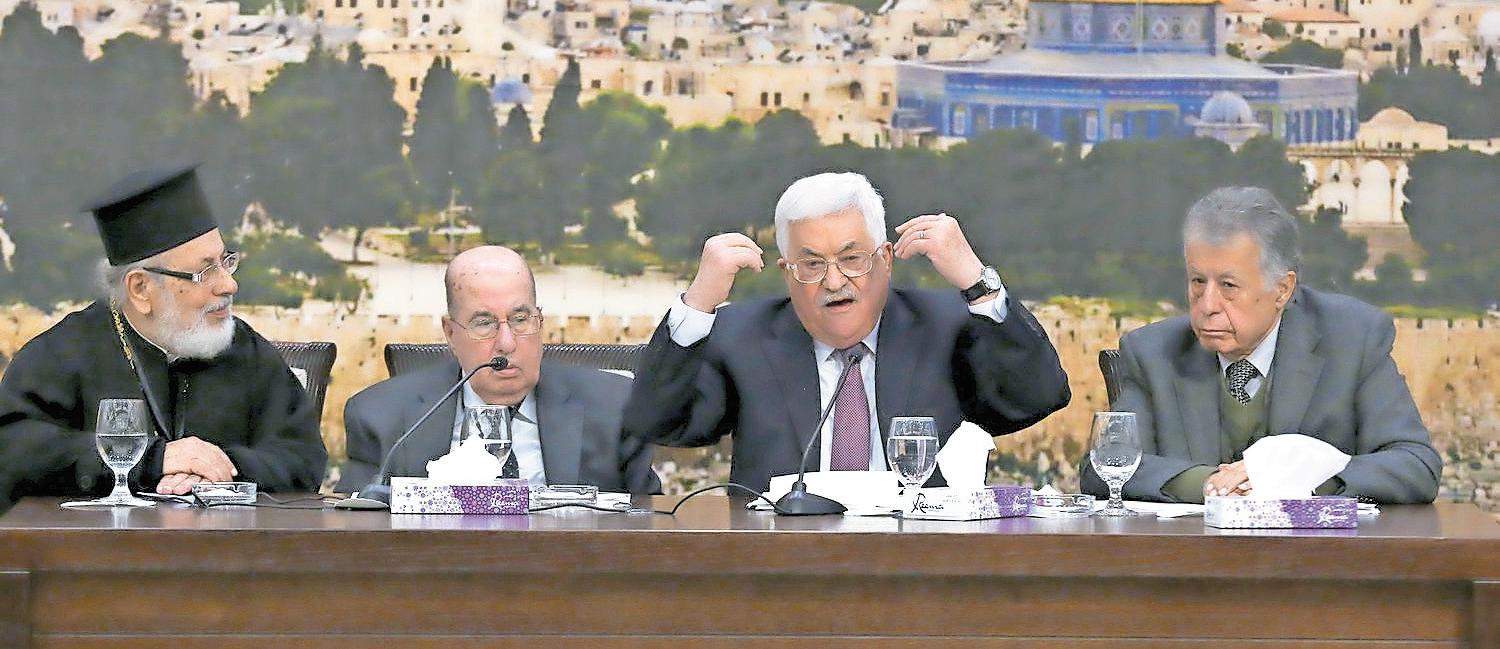
In late 2020, when the United States and the European Union finally acknowledged the lack of Palestinian democracy and demanded that the Palestinian leadership “renew its legitimacy,” Abbas temporarily acquiesced. Following the international community’s call, Abbas set elections for the PA parliament in May 2021, which were meant to be followed by elections for PA chairman in July 2021. However, when Abbas realized that his Fatah party had, in fact, splintered into several different branches — each claiming to be the authentic Fatah party — and that the elections would result in a landslide victory for Hamas, he postponed the elections indefinitely.
While Abbas’s decision flouted the desire of the international community and the Palestinian people, since then, neither the United States nor the European Union have taken any actual steps to ensure the renewal of the democratic process.
Throughout his reign as chairman, Mahmoud Abbas steered the Fatah-controlled PA, enjoying the benefits of having once won an election, on the one hand, and the willful blindness of the rest of the world (including the United States, the European Union and Israel) regarding the fact that he had turned the PA into a totalitarian regime, on the other. He also enjoyed the international prestige of being considered the sole, or at least foremost, Palestinian representative.
While the absence of Palestinian democracy is not ideal for the Palestinians, it undoubtedly gives Israel more flexibility and potential influence on the next PA leader. However, the absence of any democratic process is just one piece of the puzzle.
Despite being geographically separated, the Oslo Accords invented the fiction that the Gaza Strip, Judea and Samaria are “one territorial unit,” meant to be governed by one unified Palestinian Authority.
Initially, the PA did function as one unit that simultaneously governed the areas transferred to it both in the Gaza Strip and in Judea and Samaria. However, this has not been the case for almost 17 years, since 2007 (i.e., most of the PA’s existence.)
As noted above, in 2006, the PA held general elections for the Palestinian Legislative Council (PLC), which is the PA parliament for all intents and purposes. In anticipation of the elections, Abbas, who had replaced Arafat as PA chairman, did all he could to stack the cards in his favor.
He changed the voting system and enlarged the PLC from 88 to 132 members, in breach of the Oslo Accords. He also managed to secure a $50 million donation from the United States to the PA and an additional $2.3 million in support for the elections, which many observers allege was designed to bolster the image of Abbas and his Fatah party. Going into the elections, favorable polls also bolstered Fatah, which pre-
dicted a secure Fatah majority.
Meanwhile, in the summer of 2005, just months prior to the elections, Israel had fully implemented its “disengagement plan” from the Gaza Strip, pulling out all its troops and forcibly expelling the Israeli civilians who had lived there since the 1970s. To Abbas’s dismay, Israel’s disengagement and the scenes of destruction of what used to be Israeli communities there were quickly claimed as a success for Hamas.
In an act of regrettable folly, then-Israeli Prime Minister Ariel Sharon bowed to Palestinian and international pressure and allowed Hamas, an internationally-designated terror organization, to participate in the elections. The result for the PA, Abbas, and his Fatah party was catastrophic.
Running under the “Change and Reform” banner, Hamas broke the decade-long Fatah hegemony. After beating Fatah in almost every electoral district, Hamas won the elections by a landslide, with 74 of the 132 PLC seats.
The Hamas win caused Abbas a huge dilemma. On the one hand, the Palestinian people had spoken and chosen their democratically-elected leaders. Conversely, the chosen leaders were members of an internationally-designated terror organization. Israel, the United States, the European Union and others refused to cooperate with, and more importantly, refused to continue funding, the elected PA government.
Despite initially tolerating the Hamas-formed government, in early 2007, following a succession of events, Abbas deposed it and replaced it with a non-affiliated, so-called technocrat government.
Rejecting Abbas’s illegal coup, Hamas seized the Gaza Strip in the summer of 2007. While senior, privileged Fatah representatives, such as Mohammad Dahlan, managed to save themselves, other less fortunate Fatah representatives in Gaza were killed by Hamas, some being thrown from the top of buildings.
Following the Hamas takeover, the technocratic government established by Abbas in Ramallah was quickly replaced with a government filled with Abbas’s Fatah party members, a situation that has continued to this day.
Effectively, in 2007, the PA, at least as envisaged by the Oslo Accords, ceased to exist, and was replaced with a despotic “Hamastan” in the Gaza Strip and a despotic “Fatahland” in the areas of Judea and Samaria transferred to the control of the PA in 1994–1997.
In Fatahland, Abbas has controlled all the executive and legislative functions of what all the various actors have continued to erroneously call “the Palestinian Authority.” Abbas craftily used the US-supported PA security coordination with Israel to fortify his rule, ensuring that Hamas never gained a stronghold. When he feared the existing PA courts would not do his bidding, he simply created new ones.
In Hamastan, Hamas holds similar powers, passing “legislation” and performing all governance functions, including controlling the border crossings and collecting taxes.
In parallel to his position as PA chairman and head of Fatah, Abbas is also head of the Palestine Liberation Organization (PLO), Israel’s cosignatory to the Oslo Accords. While the PLO is theoretically an umbrella organization for many
different Palestinian factions, including internationally designated terror organizations such as the Popular Front for the Liberation of Palestine, in practice, it is dominated by Fatah.
After the creation of the PA, for many observers, the continued role of the PLO was unclear. For Arafat and Abbas, however, the PLO remained the sole source of Palestinian leadership, while the PA was merely a form of internal governance.
Over the last few years, this reality has become even more pronounced. Since mid-2018, notwithstanding the intentionally deceitful move of calling and then indefinitely postponing the 2021 elections, Abbas has adopted a series of decisions to ensure that Fatah hegemony over the PA continues even after his death. These decisions included, among other things, dissolving the PA parliament and merging the PA governmental institutions with those of the PLO.
Abbas’s Fatah party has dominated the PA since it was created. While this reality was initially a function of elections, as noted above, for more than a decade, Fatah has despotically ruled the PA Accordingly, the senior leaders of Fatah all see themselves as potential successors of Abbas at the head of Fatah and, consequently, of the PA
In the last internal elections held by Fatah in 2016, the pecking order set Marwan Barghouti (a convicted murderer currently serving five life sentences in an Israeli prison) in first place, followed by 2) Jibril Rajoub, 3) Muhammad Shtayyeh, 4) Hussein al-Sheikh, 5) Mahmoud al-Aloul, and 6) Tawfiq Tirawi.
Having come in second and hoping that Israel will not be willing to grant a special presidential pardon to terrorist murderer Barghouti, 70-yearold Rajoub sees himself as Abbas’s natural successor.
Despite only coming in third, Mohammad Shtayyeh (65) would most likely want to capitalize on the fact that he has now filled the position of PA prime minister for over four years and undoubtedly sees himself as a potential replacement for Abbas.
While he placed only fifth in the internal elections, al-Aloul (73) would point to the fact that in early 2017, Abbas appointed him as the deputy chairman of Fatah, a position he has filled since then.
Hussein al-Sheikh (63) would stake his claim to succeed Abbas on the fact that in May 2022, Abbas appointed him to be the Secretary General of the PLO Executive Committee, in addition to his ministerial position as the head of PA Civil Affairs. Moreover, as Jerusalem Center Middle East specialist Yoni Ben Menachem recently noted, the Fatah movement’s Revolutionary Council has set Dec. 17, 2023, as the date for the movement’s eighth conference in Ramallah. In that conference, al-Sheikh, backed by the powerful head of Palestinian intelligence, Majed Faraj, intends to pave his way to Fatah’s leadership, removing some of his rivals from leadership positions within the movement.
Mohammed Dahlan (61) also sees himself as a potential successor to Abbas. Dahlan, who once headed the Preventive Security Forces in Gaza and served as the PA National Security Adviser, fled the PA after a conflict with Abbas. Dahlan was later indicted, convicted and sentenced to
three years in prison and a $16 million fine, all in absentia. Since fleeing, Dahlan has resided in the United Arab Emirates. For his candidacy to be successful, it would require the interim PA leadership, one of his direct rivals, to grant him clemency.
If the Palestinian people are asked who they want to succeed Abbas, the answer is clear. According to a survey conducted by the Palestinian Center for Policy and Survey Research (PCPSR):
•If Palestinians were asked to choose between Ismail Haniyeh of Hamas or Marwan Barghouti of Fatah, Barghouti would win 60% of the votes and Haniyeh 37%.
•If the race were between Ismail Haniyeh and current PA Prime Minister Mohammad Shtayyeh, Haniyeh would receive 62% while Shtayyeh would receive only 33%.
•When given a list of candidates to choose from, 34% expressed support for Barghouti; 17% support Haniyeh; 6% Dahlan; 5% Hamas politburo head Khaled Mashaal; 3% Yahya al-Sinwar, the leader of Hamas in Gaza; 3% Shtayyeh; and 3% support al-Sheikh.
If elections for the PA parliament were held today, according to the PCPSR survey, Hamas would repeat its 2006 electoral victory. While Fatah would have a slight majority of the votes (36%) compared to Hamas (34%), the result assumes that only one united Fatah list would run. Since, as seen in 2021, this is not necessarily the case, Hamas would likely receive the most significant number of seats, while Fatah’s share would be divided between the different groups claiming to be the “original Fatah.”
Given the absence of any Palestinian democratic process, Netanyahu apparently believes he can influence the choice of the next PA leader, for several reasons.
The central reasoning behind any of the following moves would be that the Oslo Accords, from which the PA and its leader draw their basic legitimacy, set out clearly the manner in which the PA chairman is elected. For the last decade, Israel has ignored the absence of Palestinian democracy and the breach of the Accords, but it need not continue on that path of folly.
To influence the identity of the next PA leader, Israel could declare that it expects strict adherence to the provisions of the Accords. Several measures could support this demand.
As part of the Oslo Accords, Israel agreed to waive billions of shekels of tax income in favor of the PA.
As part of the agreement, Israel collects four main categories of taxes and transfers them to the PA. Palestinians pay two of the taxes — import taxes and excise duties — for goods and fuel imported from abroad. The two other taxes— VAT and income tax—are paid by Palestinians for goods and services purchased from Israel or for working in Israel or in Israeli communities in Judea and Samaria.
Over the years, the tax income has grown substantially. According to budget performance reports published by the PA, for 2017 through 2022, the taxes accounted for between 65.9% and 68.8% of all PA revenues.
In 2022, according to budget performance reports released by the PA, the taxes collected by Israel and transferred to the PA accounted for 68% of the total expenditure by PA institutions.
In other words, Israel’s government holds the financial future of the PA in its hands. If the Israeli government does not recognize the leader who claims to stand at the head of the PA, it could simply refuse to transfer the tax income, and the PA would not be able to survive.
Netanyahu is well aware of the power he holds over the PA. Even though he knows that the money Israel transfers is used by the PA to incite terror and the murder of Jews, to fund the Continued on next page
PLO/PA’s terror-rewarding “pay-for-slay” policy, to fund the PA’s international lawfare against Israel in the United Nations, the International Criminal Court and the International Court of Justice, and a host of other PA malfeasances, he has consistently balked at implementing decisions, policies and legislation that might potentially negatively affect the PA.
While considering Israel’s reluctance to use its financial leverage, any potential candidate to replace Abbas who is not chosen in the manner prescribed by the Oslo Accords would need to gain Israel’s consent to continue receiving the critical tax income.
It should be noted that the collection by Israel and transfer of taxes to the PA is not done in a vacuum. Instead, it is governed by Israeli law that periodically implemented the Oslo Accords. The term “Palestinian Authority” has a specified meaning in those laws. If it were found that the established body no longer exists, Israel would have to change its laws to cater to the new reality and continue transferring the tax income.

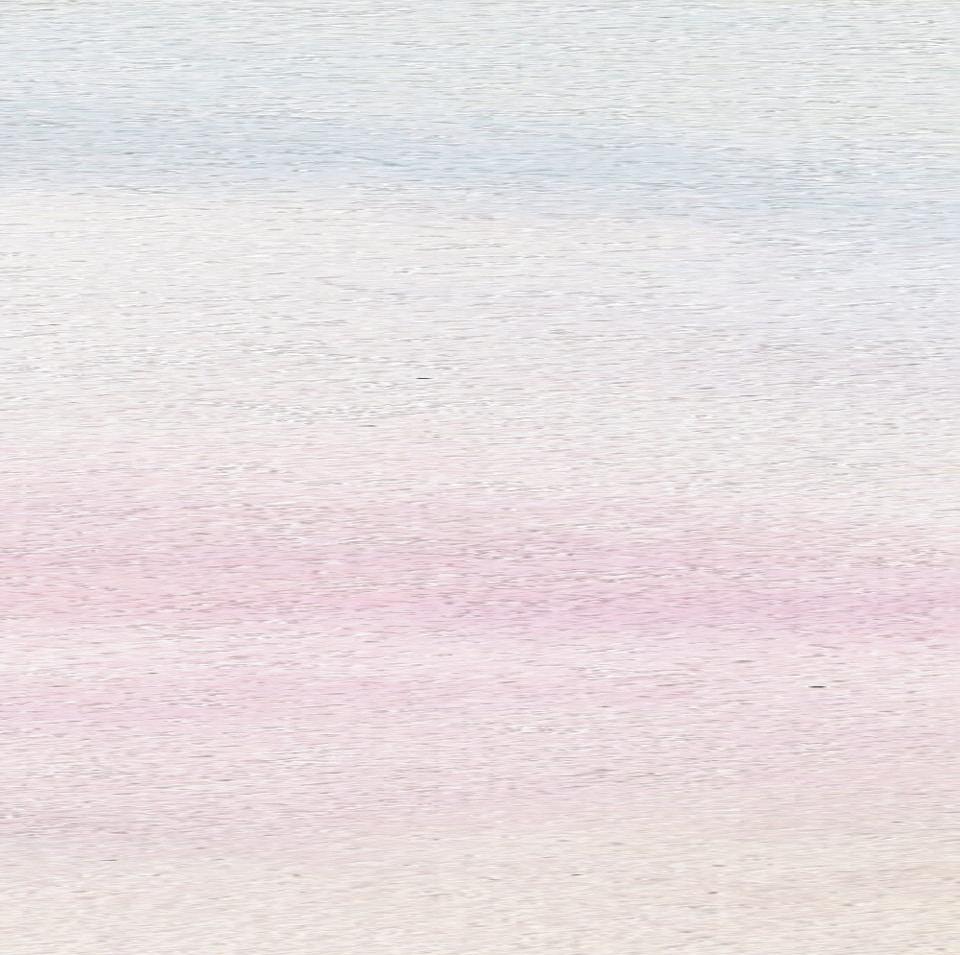
Alongside the financial considerations, Israel and the potential replacement for Abbas would also have to weigh mobility factors.
A person who claims to head the PA is naturally required to travel between the different parts of Fatahland and internationally outside of Judea and Samaria. While the PA is relatively autonomous, the Palestinian leader needs Israel’s cooperation to travel around.
Within Judea and Samaria, travel between the areas that the PA theoretically governs requires passage through Area C, which, according to the Oslo Accords, is under the sole jurisdiction of Israel. While Palestinians can enter and travel around this area in regular circumstances without any obstacles, the PA leader must be accompanied by armed guards.
Similarly, since Israel controls the external borders and airspace of Judea and Samaria, for the PA leader to travel abroad and maintain the façade and privileges of being the PA leader,
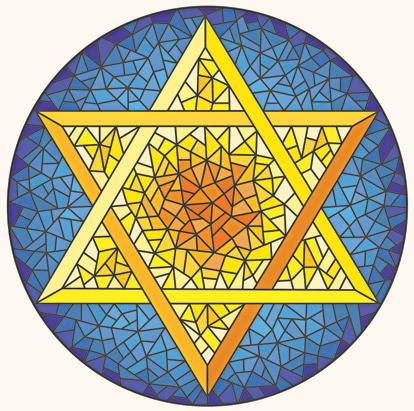
Israel would have to recognize that person’s legitimacy.
The unique travel privileges granted to the chairman, his family and his bodyguards are stipulated in Annex I of the Israeli-Palestinian Interim Agreement on the West Bank and the Gaza Strip, which is the most dominant of the Oslo Accords.
If the person claiming to head the PA does not receive Israel’s recognition, Israel could prevent that person from enjoying the privilege the Oslo Accords granted to the PA chairman.
While there are certainly other considerations, without money and without the status and privileges Israel grants to the PA leader, Abbas’ potential replacement would find it impossible, in the long term, to function on both an institutional and personal level.
Netanyahu has stated that Israel is preparing for the “day after Abu Mazen” and that Israel aims to maintain the PA.
Since it is evident to any objective observer that no single, unified Palestinian Authority, as envisaged by the Oslo Accords, actually exists today, after Abbas leaves the political scene, Israel, according to the prime minister, will strive to maintain the pretense of the existence of that body. It is unclear, however, whether Israel will strive to preserve the despotic rule of Fatah over Fatahland while simultaneously maintaining the internal Palestinian rift with Hamastan.
The advantage of maintaining the pretense is that, irrespective of the identity of the despotic leader chosen, the Fatahland leadership will continue to govern and provide for the needs of the
Palestinian population, however poorly, thereby relieving Israel of that burden.
While the task of the new Fatahland leader would not be simple, it comes with a potentially multi-billion-dollar dowry, the perks of traveling the globe as a national leader and the ability to enrich those close to him.
The disadvantage of maintaining the pretense is that to survive internally, the new Fatahland leader must prove his fighting credentials, and that he is not just another Israeli stooge. Will that mean the new leadership of Fatahland will continue the pugnacious practices and policies of Abbas, incite terror and the murder of Jews, squander billions to reward terrorists, attack Israel in international forums and continue undermining Israel’s legitimacy?
When 87-year-old Abbas leaves the political scene, the “Palestinian Authority” will enter a new phase. Abbas’s legacy to the Palestinians is the destruction of the PA as a unified entity. Instead of fighting terror, Abbas embraced the internationally-designated terror organization Hamas and insisted that the terrorists be allowed to participate in the PA elections. Abbas similarly squandered billions inciting terror and murder and incentivizing and rewarding terror and terrorists. Abbas also spearheaded the use of lawfare to attack and delegitimize Israel. The PA under Abbas was little more than a glorified terror organization.
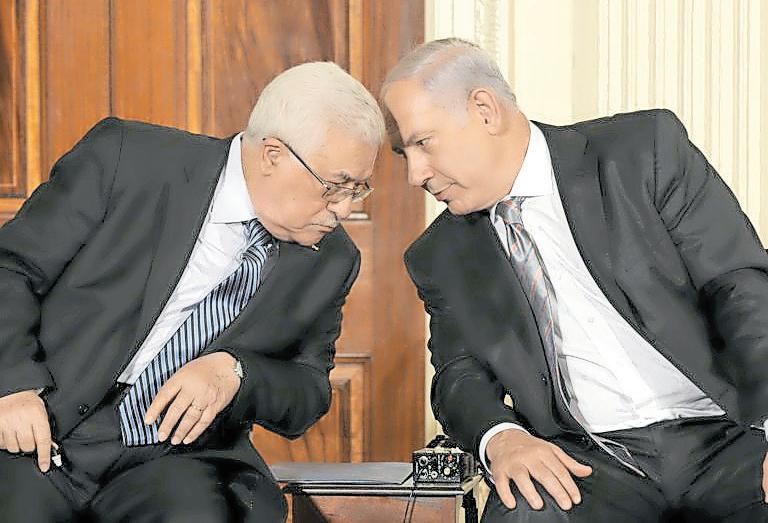
Nonetheless, the Israeli security establishment, which has sunk deep into the Oslo paradigm, has managed to convince Israel’s government that maintaining the semblance and pretense of the existence of the “Palestinian Authority” (i.e., the presence of Fatahland) is in Israel’s strategic interest.
Will Israel’s government continue its willful blindness to the wrongdoings of the Palestinians to maintain this pretense? Will Israel continue funding all the disastrous policies of the Fatahland leader and grant him all the privileges and perks of being the Palestinian leader, even if the Palestinians had no say in his selection?
Originally published by the Jerusalem Center for Public Affairs.
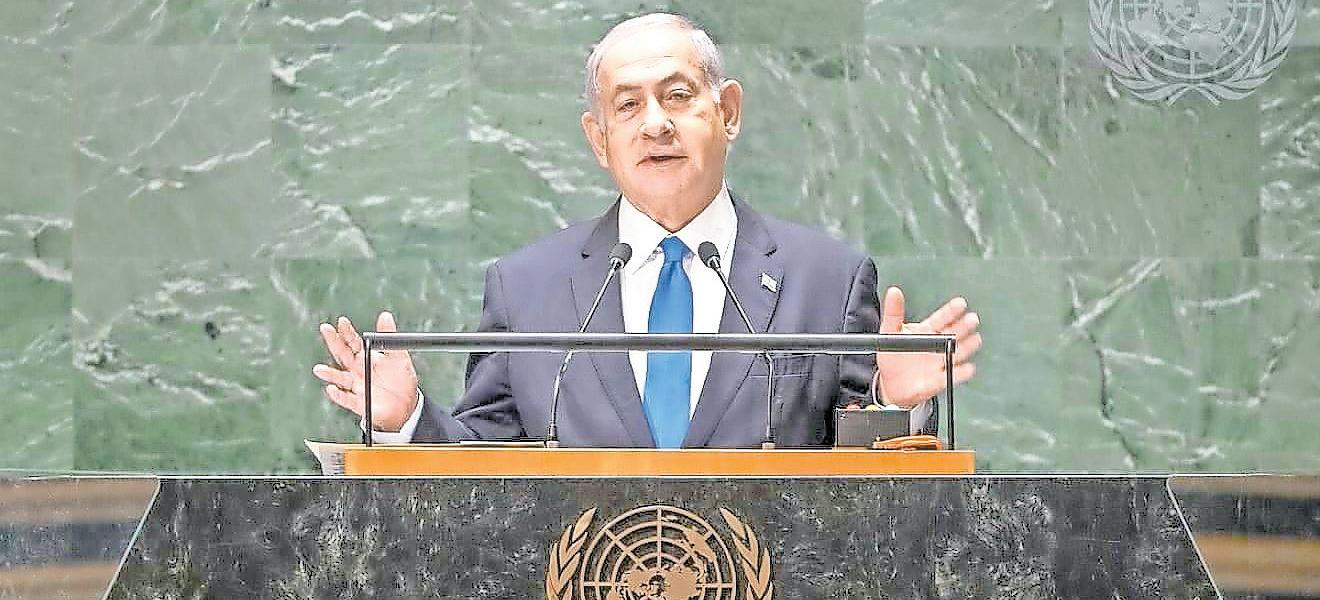
Over three millennia ago, our great leader Moses addressed the people of Israel as they were about to enter the Promised Land. He said they would find there two mountains facing one another: Mount Gerizim, the site on which a great blessing would be proclaimed, and Mount Ebal, the site of a great curse.
Moses said the people’s fate would be determined by the choice they made between the blessing and the curse. That same choice has echoed down the ages not just for the people of Israel but for all humanity.
We face such a choice today. It will determine whether we enjoy the blessings of a historic peace of boundless prosperity and hope or suffer the curse of a horrific war, of terrorism and despair.
When I last spoke at this podium five years ago, I warned about the tyrants of Tehran. They have been nothing but a curse. A curse to their own people, to our region, to the entire world. But at that time, I also spoke about a great blessing that I could see on the horizon.
Here’s what I said: “The common threat of Iran has brought Israel and many Arab states closer than ever before in a friendship that I have not seen in my lifetime.”
I said: “The day would soon arrive when Israel would be able to expand peace beyond Egypt and Jordan to other Arab neighbors.”
Now, in countless meetings with world leaders, I made the case that Israel and the Arab states shared many common interests, and that I believed that these many common interests could facilitate a breakthrough for a broader peace in our region.
You applaud now, but at the time, many dismissed my optimism as wishful thinking. Their pessimism was based on a quarter-century of good intentions and failed peacemaking. Why were these good intentions; why did they always meet failure?
Because they were based on one false idea — that unless we first concluded a peace agreement with the Palestinians, no other Arab state would normalize its relations with Israel.
I’ve long sought to make peace with the Palestinians. But I also believe that we must not give the Palestinians a veto over new peace treaties with Arab states.
The Palestinians could greatly benefit from a broader peace. They should be part of the process, but they should not have a veto over the process. And I also believe that making peace with more Arab states would actually increase the prospects of making peace between Israel and the Palestinians.
See, the Palestinians are only 2% of the Arab world. As long as they believe that the other 98% will remain in a war-like state with Israel, that larger mass, that larger Arab world could eventually choke, dissolve, destroy the Jewish state.
So when the Palestinians see that most of the Arab world has reconciled itself to the Jewish state, they too will be more likely to abandon the fantasy of destroying Israel and finally embrace a path of genuine peace with it.
For years, my approach to peace was rejected by the so-called experts.
Well, they were wrong.
Under their approach, we didn’t forge a single peace treaty for a quarter century. Yet in 2020, under the approach that I advocated, we tried something different, and in no time we achieved a remarkable breakthrough.
We achieved four peace treaties working with the United States. Israel forged four peace agreements in four months with four Arab states: the United Arab Emirates, Bahrain, Sudan and Morocco.
The Abraham Accords were a pivot of history. And today, we all see the blessings of those accords.
Trade and investment with our new peace partners are booming. Our nations cooperate in commerce, energy, water, agriculture, medicine, climate and many, many other fields. Close to a million Israelis have visited the United Arab Emirates in the past three years.
Every day, Israelis save time and money by doing something they couldn’t do for 70 years. They fly over the Arabian Peninsula to destinations in the Gulf, India, the Far East, Australia.
The Abraham Accords ushered in another dramatic change. It brought Arabs and Jews closer together.
We see it in the frequent Jewish weddings in Dubai, in the dedication of a Torah scroll in a synagogue in Bahrain, in the visitors flocking to the museum of Moroccan Judaism in Casablanca. We see it in lessons that are given to Arab students about the Holocaust in the UAE.
There’s no question, the Abraham Accords heralded the dawn of a new age of peace. But I believe that we are at the cusp of an even more dramatic breakthrough: an historic peace with Saudi Arabia.
Such a peace will go a long way to ending the Arab-Israeli conflict. It will encourage other Arab states to normalize relations with Israel. It will enhance the prospects of peace with the Palestinians. It will encourage a broader reconciliation between Judaism and Islam, between Jerusalem and Mecca, between the descendants of Isaac and the descendants of Ishmael.
All these are tremendous blessings.
Two weeks ago, we saw another blessing already in sight. In the G20 Conference, President Biden, Prime Minister Modi and European and Arab leaders announced plans for a visionary corridor that will stretch across the Arabian Peninsula and Israel.
It will connect India to Europe with maritime links, rail links, energy pipelines, fiber-optic cables. This corridor will bypass maritime chokepoints and dramatically lower the costs of goods, communication and energy for over 2 billion people.
What a historic change for my country!
You see, the Land of Israel is situated on the crossroads between Africa, Asia and Europe. And for centuries, my country was repeatedly invaded by empires passing through it in their campaigns of plunder and conquest elsewhere.
But today, as we tear down walls of enmity, Israel can become a bridge of peace and prosperity between these continents. Peace between Israel and Saudi Arabia will truly create a new Middle East.
So understand the magnitude of the transformation that we seek to advance. Let me show you a map of the Middle East in 1948, the year Israel was established.
Here is Israel in 1948. It’s a tiny country, isolated, surrounded by a hostile Arab world.
In our first 70 years, we made peace with Egypt and Jordan. And then in 2020, we made the Abraham Accords, peace with another four Arab states
Now look at what happens when we make peace between Israel and Saudi Arabia. The whole Middle East changes. We tear down the walls of enmity. We bring the possibility of peace to this entire region.
But we do something else.
You know, a few years ago I stood here with a red marker to show the curse, a great curse, the curse of a nuclear Iran. But today, I bring this marker to show a great blessing. The blessing of a new Middle East, between Israel, Saudi Arabia and our other neighbors.
We will not only bring down barriers between Israel and our neighbors. We’ll build a new corridor of peace and prosperity that connects Asia through the UAE, Saudi Arabia, Jordan, Israel, to Europe.
This is an extraordinary change, a monumental change, another pivot of history.
As the circle of peace expands, I believe that a real path towards a genuine peace with our Palestinian neighbors can finally be achieved.
But there’s a caveat. It has to be said here forcefully. Peace can only be achieved if it is based on truth. It cannot be based on lies. It cannot be based on the endless vilification of the Jewish people.
Palestinian leader Mahmoud Abbas must stop spreading the horrible antisemitic conspiracies against the Jewish people and the Jewish state. He recently said that Hitler wasn’t an antisemite. You can’t make this up. But he did. He said that.
The Palestinian Authority must stop glorifying terrorists. They must stop its ghoulish pay-to-slay policy of giving money to Palestinian terrorists for the murder of Jews. This is all outrageous. It must stop for peace to prevail.
Antisemitism must be rejected wherever it appears, whether on the left or on the right, whether in the halls of universities or in the halls of the United Nations.
For peace to prevail the Palestinians must stop spewing Jew-hatred and finally reconcile themselves to the Jewish state. By that I mean not only
to the existence of the Jewish state but to the right of the Jewish people to have a state of their own in their historic homeland, the Land of Israel. And let me tell you, the people of Israel yearn for a genuine peace. I yearn for such a peace.
As a young soldier over half a century ago, my comrades and I in Israel’s special forces faced mortal danger on many fronts, on many battlefields. From the warm waters of the Suez Canal to the frozen slopes of Mount Hermon, from the banks of the Jordan River to the tarmac of Beirut airport.
These experiences and other experiences taught me the cost of war.
A fellow soldier was killed next to me. Another died in my arms. I buried my older brother. Those who have personally suffered the curse of war can best appreciate the blessing of peace.
There are many hurdles on the path of peace. There are many hurdles on the extraordinary path to peace that I’ve just described. But I am committed to doing everything I can to overcome those hurdles, to forge a better future for Israel and all the peoples in our region.
Two days ago, I discussed this vision of peace with President Biden. We share the same optimism for what can be achieved. And I deeply appreciate his commitment to seize this historic opportunity.
The United States of America is indispensable in this effort.
Just as we achieved the Abraham Accords with the leadership of President Trump, I believe we can achieve peace with Saudi Arabia with the leadership of President Biden.
Working together with the leadership of Crown Prince Muhammed Bin Salman, we can shape a future of great blessings for all our peoples
Now you know, ladies and gentlemen, you know there’s a fly in this ointment because rest assured, the fanatics ruling Iran will do everything they can to thwart this historic peace.
Iran continues to spend billions to arm its terror proxies. It continues to extend its terror tentacles in the Middle East, Europe, Asia, South America, even North America.
They even tried to assassinate the secretary of state of the United States of America. They even tried to assassinate the national security advisor of the United States of America. This tells you all you need to know about Iran’s murderous intentions and Iran’s murderous nature.
Iran continues to threaten international shipping lanes, hold foreign nationals for ransom and engage in nuclear blackmail.
Over the past year, its murderous goons have killed hundreds and arrested thousands of Iran’s brave citizens.
Israel is ‘at the cusp of an even more dramatic breakthrough: an historic peace with Saudi Arabia.’
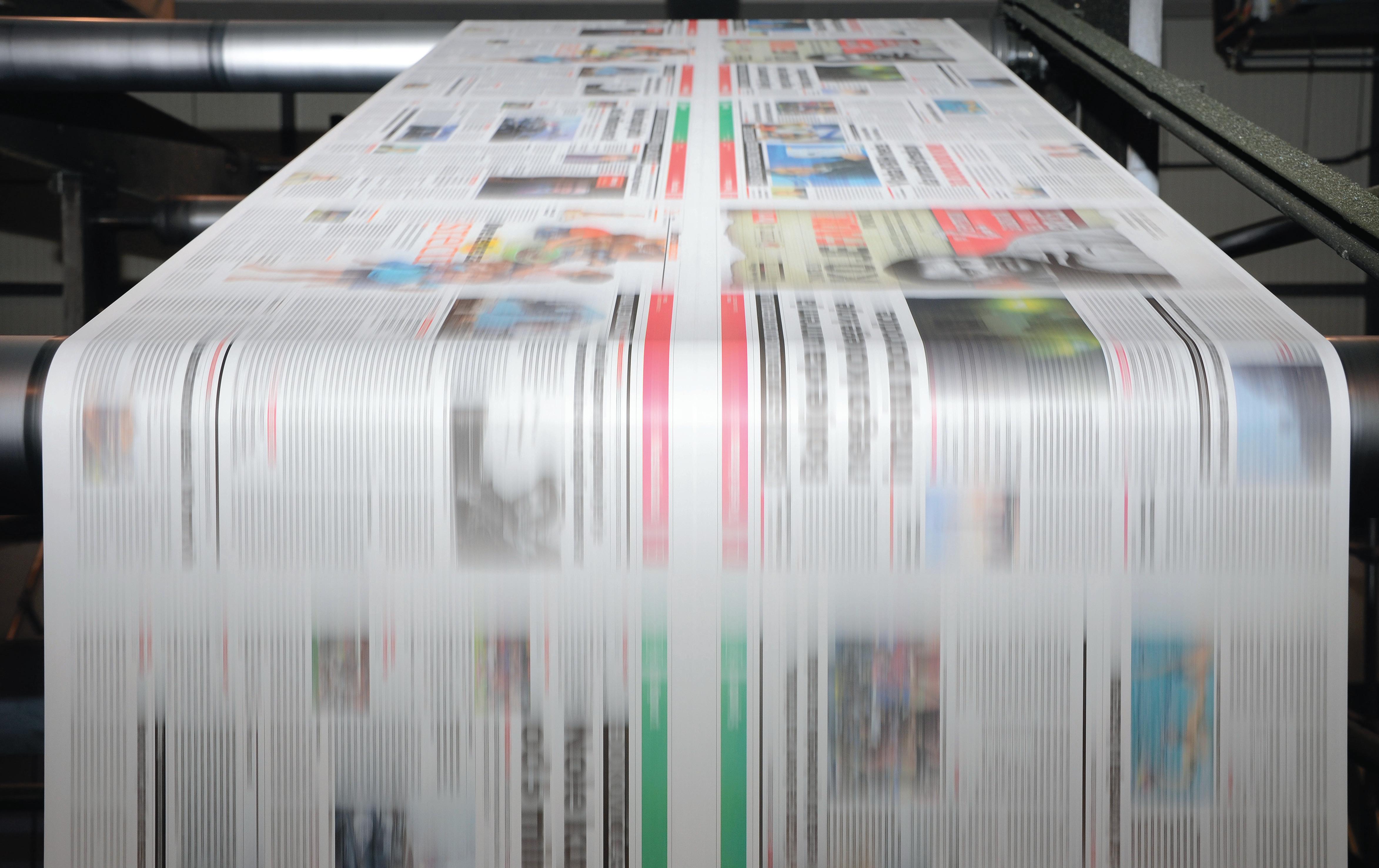

A 1953 “coup put an end to the best hope for democratic secular politics in Iran during the 20th century,” stated Nader Hashemi during a recent podcast titled “Iran: The Struggle for Democracy.”
Hashemi, an American of Iranian ancestry, is the newly-installed director of Georgetown University’s Saudi-established Prince Alwaleed Bin Talal Center for Muslim-Christian Understanding. Hashemi was appointed to this position after his anti-Israel conspiracy mongering made his presence on the faculty of the University of Denver untenable. His remarks reflect the standard academic worldview that blames the West for Iran’s deplorable record since the 1979 revolution that brought the current Islamist regime to power.
The podcast’s leftist producer David Barsamian opened with the oft-told tale that “in 1953, the US and UK overthrew the liberal democratic government of Mohammad Mossadegh in Iran.”
“The consequences of the coup were enormous and ultimately led to the establishment of the Islamic Republic of Iran,” Barsamian asserted.
Barsamian and Hashemi’s assertions are a common leftist canard. It holds that the AngloAmerican alliance’s affirmation of the authority of Iran’s monarch Shah Mohammad Reza Pahlavi, who briefly fled Iran during the 1953 crisis, enabled the shah’s subsequent despotic rule. It further claims that the resulting popular backlash brought on the shah’s ultimate downfall in the 1979 revolution, which Islamists then exploited to take power.
“In 1953, Iran had a very deep-rooted and significant pro-democracy experience,” Hashemi claimed. Mossadegh, he said, was a “democratic leader” and “had a lot of popular support.” By contrast, the shah’s policies “led to the rise of a religious-based opposition politics” and “created an incubator effect for radicalism and extremism that culminated in the ’79 revolution.”
“How different might the Islamic world be today if, in the heart of the Islamic world, you had


an authentic indigenous democracy that supported human rights,” Hashemi mused.
Hashemi and Barsamian’s theories are mythology, particularly their fanciful description of Mossadegh as democratically elected. It is true that Mossadegh, along with members of Iran’s parliament, the Majlis, stood election. But under the Iranian constitution, the shah had the sole power of appointing and dismissing the prime minister, subject only to a Majlis advisory vote. Moreover, after he was appointed by the shah in 1951, Mossadegh himself engaged in some rather undemocratic maneuvers, such as holding a fraudulent referendum to dismiss the Majlis. Mossadegh then frittered away whatever pop-
ularity he had through his nationalization of the Anglo-Iranian Oil Company. This prompted a devastating British embargo on Iranian oil production and sales. In particular, Mossadegh alienated Iran’s middle class by spurning American mediation efforts. Following the shah’s 1953 removal of Mossadegh, this was resolved and Britian and Iran reached an agreement on oil revenues.
In addition, Mossadegh’s secularism alienated Iran’s Shiite clergy and the pious rural population, then a majority of Iranian citizens. As a result, religious Shiites played a major role in popular unrest against Mossadegh’s rule. This unrest began on Aug. 15, 1953, after the prime minister illegally defied the vacillating shah, who
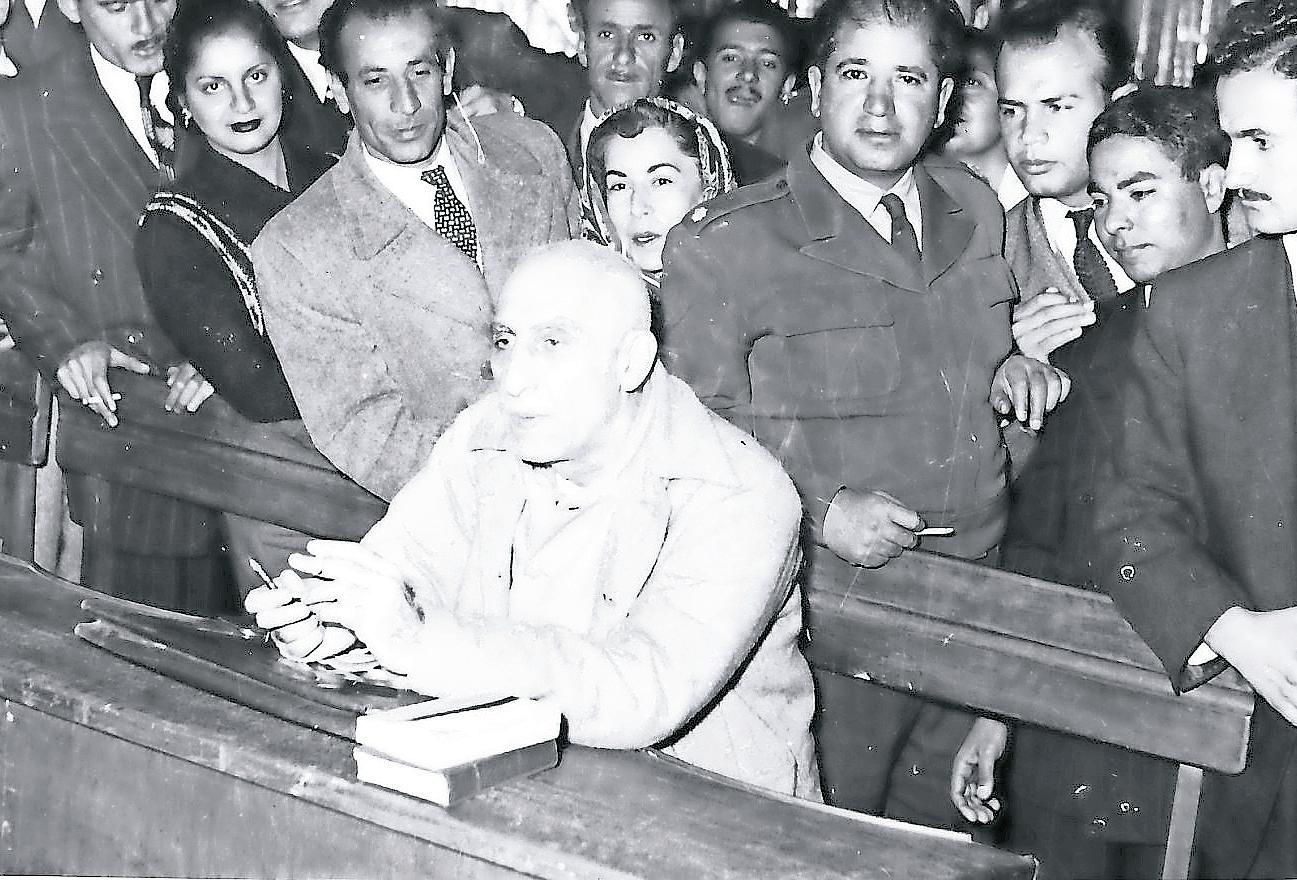
had finally found the courage to stand up to Mossadegh with Western support. Although Western agents helped publicize the shah’s dismissal decree and gave some support to protesters, it was largely the Iranian masses themselves who convinced Mossadegh to resign on Aug. 19, 1953.
Thus, Barsamian and Hashemi’s skewed history overlooks the irony that Iran’s theocrats are heirs to the Shiites who were instrumental in toppling Mossadegh. Hashemi never explained why such Shiites would have supported Western ideas of human rights under Mossadegh, given that they reacted with outrage to the shah’s proWestern, secularizing policies. While the podcast duo painted the shah as a tyrant, it was the shah’s leniency and moderation that facilitated his downfall in 1979.
Hashemi’s policy prescriptions were equally unimpressive. For example, he is opposed to sanctions on the Islamic Republic.
“Average citizens who have no say over the policies of the government,” he said, “pay the price” for the sanctions, which is a “tragedy.” He did say that he is “strongly in favor of targeted sanctions against people who have blood on their hands,” but claimed that sanctions in general have “a very catastrophic effect on the ability of citizens to mobilize” and “undermine the struggle for democracy.” He further asserted that “hardliners” have “their own ways of avoiding sanctions.”
However, Iranian dissidents have not supported sanctions relief. Numerous media reports on Iranian dissidents demonstrate this. Hashemi’s claims may stem from the fact that he is a known supporter of the National Iranian American Council, which Iranian dissidents and analysts have long accused of advocating for the Islamic Republic.

Indeed, Hashemi’s own comments undermined his claims regarding sanctions and their effect on the “struggle for democracy.” For example, he estimated current support for the Islamic
See History on page 22

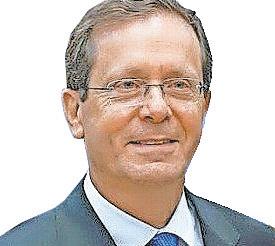
In his testimony before the Agranat Commission that investigated the Yom Kippur War, Col. Gabi Amir described the fateful and difficult hours of the fighting in the Sinai Peninsula as follows:
The units “reported on the radios that the enemy was advancing and starting to attack us. … I saw that at a distance of three to four kilometers from me, tanks and APCs were advancing, stopping, and shooting — and between them a huge amount of infantry. All of that was marching toward us, forward. It was a scene none of us had ever witnessed before. We got permission to withdraw. We received permission, but we did not retreat.”
Even 50 years after the Yom Kippur War, the reason the war ended as it did is clear to everyone. It was the bravery and resourcefulness of the commanders and fighters in the field that stood despite the failure of warning and deterrence that resulted in an existential threat to Israel; their dedication, courage, initiative, devotion and self-sacrifice; a sense shared by all of the responsibility for the nation and homeland.
It is thanks to them that the war in which Israel started out at a disadvantage ended with an impressive victory.
I was of bar mitzvah age when the war broke out, and since then, every year on the Memorial Day for Fallen Soldiers and Victims of Terror, growing up in Tel Aviv’s Tzahala neighborhood,
the names of the 11 heroes from the area who fell in the war echoed in my ears — neighbors and friends, the siblings of my best friends, my brother’s best friends.
The war left its mark on an entire generation that suffered a fatal blow and experienced a great fracture. I do not know if the wounds sustained 50 years ago will ever heal.
The war taught us two major lessons that remain relevant even after half a century.
The first was best described by my father, the late sixth President Chaim Herzog, in his book “War of Atonement: The Inside Story of the Yom Kippur War.”
In it, he wrote that following Israel’s incredible victory in the 1967 Six-Day War, there was an atmosphere of “we were like dreamers” in society that led to the IDF ignoring its many weaknesses revealed during the conflict, including those pertaining to intelligence regarding the Arabs’ intentions, which turned out to be false.
The Yom Kippur War further reinforced the
lesson that Israel needs to be prepared for any and all scenarios and work to produce quality, integrated and diverse intelligence while operating with humility and constant self-examination.
We learned not to ignore the signs of approaching war and bask in the euphoria of the achievements of the past, however great they may be. The world must know that Israel can protect itself by itself — in any way, at any time and in any place.
And there is a second, equally important lesson: not to ignore the signs of peace. In hindsight, it became clear that then-President of Egypt Anwar Sadat conveyed clear messages in the year leading up to the Yom Kippur War regarding his desire for a peace treaty. Unfortunately, just as the signs of war were ignored 50 years ago, so was the hand outstretched in peace.
And the peace that seemed impossible just a few years prior became a reality, largely thanks to Israel’s victory in the war.
The Yom Kippur War changed the face of the

nation and shook it diplomatically, politically, mentally and socially. Some argue that that was the point when solidarity within Israeli society eroded, and we all see the deepening of the divide even today.
The events of the last few months have further deepened the divisions in Israeli society, making unity the most challenging and important battle that awaits us, perhaps since the dramatic days of the Yom Kippur War. The effort to bring together the nation, to connect, to mediate our differences and to build bridges was and still is my life’s mission, as well as that of all of Israel.
Fifty years after the Yom Kippur War, we all remember with admiration our brave brothers, who paid the heaviest price of all, and their loved ones who live in the shadow of loss and those who were wounded in the war, in body and soul.
On this day, we all bow our heads before the magnitude of their sacrifice and wish to be worthy of it as a country, as a society and as citizens.
Continued from page 12
Iran’s drones and missile program threaten Israel and our Arab neighbors. And Iran’s drones have brought and bring death and destruction to innocent people in Ukraine.
Yet the regime’s aggression is largely met by indifference in the international community.
Eight years ago, the Western powers promised that if Iran violated the nuclear deal, the sanctions would be snapped back.
Well, Iran is violating the deal. But the sanctions have not been snapped back. To stop its nuclear ambitions, this policy must change. Sanctions must be snapped back and above all, Iran must face a credible military threat.
As long as I am prime minister of Israel, I will do everything in my power to prevent Iran from getting nuclear weapons.
Equally, we should support the brave women and men of Iran who despise this regime and yearn for freedom, who’ve gone out bravely on the sidewalks of Tehran and Iran’s other cities and face death.
It is the people of Iran, not their oppressors, who are our real partners for a better future.
Ladies and gentlemen,
Whether our future will prove to be a blessing or a curse will also depend on how we address perhaps the most consequential development of
our time, the rise of artificial intelligence.
The AI revolution is progressing at lightning speed. It took centuries for humanity to adapt to the agricultural revolution. It took decades to adapt to the industrial revolution. We may have but a few years to adapt to the AI revolution.
The perils are great and they are before us: the disruption of democracy, the manipulation of minds, the decimation of jobs, the proliferation of crime and the hacking of all the systems that facilitate modern life.
Yet even more disturbing, is the potential eruption of AI-driven wars that could achieve an unimaginable scale.
Behind this perhaps looms an even greater threat, once the stuff of science fiction: that selftaught machines could eventually control humans instead of the other way around.
The world’s leading nations, however competitive, must address these dangers. We must do so quickly and we must do so together. We must ensure that the promise of an AI utopia does not turn into an AI dystopia.
We have so much to gain.
Imagine the blessings of finally cracking the genetic code, extending human life by decades and dramatically reducing the ravages of aging.
Imagine healthcare tailored to each individual’s genetic composition and predictive medicine
that prevents diseases long before they occur.
Imagine robots helping to care for the elderly.
Imagine the end of traffic jams with self-driving vehicles on the ground, below the ground and in the air.
Imagine personalized education that cultivates each person’s full potential throughout their lifetime.
Imagine a world with boundless clean energy and natural resources for all nations.
Imagine precision agriculture and automated factories that yield food and goods in an abundance that ends hunger and want.
I know this sounds like a John Lennon song, but it could all happen.
Imagine that we can achieve the end of scarcity, something that eluded humanity for all history. It’s all within our reach. And here’s something else within our reach.
With AI we can explore the heavens as never before and extend humanity beyond our blue planet. For good or bad, the developments of AI will be spearheaded by a handful of nations.
And my country Israel is already among them.
Just as Israel’s technological revolution provided the world with breathtaking innovations, I am confident that AI developed by Israel will once again help all humanity.
I call upon world leaders to come together to
shape the great changes before us but to do so in a responsible and ethical way.
Our goal must be to ensure that AI brings more freedom and not less, prevents wars instead of starting them, and ensures that people live longer, healthier, more productive and peaceful lives. It’s in our reach.
As we harness the powers of AI, let us always remember the irreplaceable value of human intuition and wisdom.
Let us cherish and preserve the human capacity for empathy which no machine can replace.
Thousands of years ago, Moses presented the children of Israel with a timeless and universal choice, “Behold, I set before you this day a blessing and a curse.”
May we choose wisely between the curse and the blessings that stand before us this day.
Let us harness our resolve and our courage to stop the curse of a nuclear Iran and roll back its fanaticism and aggression.
Let us bring forth the blessings of a new Middle East that will transform lands once ridden with conflict and chaos into fields of prosperity and peace.
And may we avoid the perils of AI by combining the forces of human and machine intelligence to usher in a brilliant future for our world, in our time and for all time.
Israel learned not to ignore the signs of approaching war and bask in the euphoria of the achievements of the past. But signs of peace should not be ignored either.A sukkah on an Israeli army vehicle in the Golan during the 1973 Yom Kippur War. Nathan Fendrich, Pritzker Family National Photography Collection, National Library of Israel
jewish star torah columnists:
•Rabbi Avi Billet of Anshei Chesed, Boynton Beach, FL, mohel and Five Towns native •Rabbi David Etengoff of Magen David Yeshivah, Brooklyn
•Rabbi Binny Freedman, rosh
yeshiva of Orayta, Jerusalem
contributing writers:
•Rabbi Sir Jonathan Sacks zt”l,
former chief rabbi of United Hebrew Congregations of the British Commonwealth •Rabbi Dr. Tzvi Hersh
Weinreb, OU executive VP emeritus
•Rabbi Raymond Apple, emeritus rabbi, Great Synagogue of Sydney
•Rabbi Yossy Goldman, life rabbi emeritus, Sydenham Shul, Johannesburg and president of the South African Rabbinical Association.
contact our columnists at: Publisher@TheJewishStar.com
Five towns candlelighting: From the White Shul, Far Rockaway, NY
Fri Sept 29 / 14 Tishrei

Erev Succos • Friday Candles: 6:22
Sat Candles: 7:21 • Sun Havdalah: 7:28
Fri Oct 6 / 21 Tishrei
Hoshana Rabah • Erev Shmini Atzeret
Fri Candles: 6:11 • Sat Candles: 7:10
Sun Simchat Torah • Sun Havdalah: 7:17
Fri Oct 13 / 28 Tishrei
Bereshis • Shabbos Mevarchim
Candles: 6:00 • Havdalah: 7:0
Fri Oct 20 / 5 Cheshvan
Noach
Candles: 5:49 • Havdalah: 6:57
Fri Oct 27 / 12 Cheshvan
Lech Lecha
Candles: 5:40 • Havdalah: 6:47
Fri Nov 3 / 19 Cheshvan
Vayera
Candles: 5:31 • Havdalah: 6:39
rabbi sir
jonathan sacks
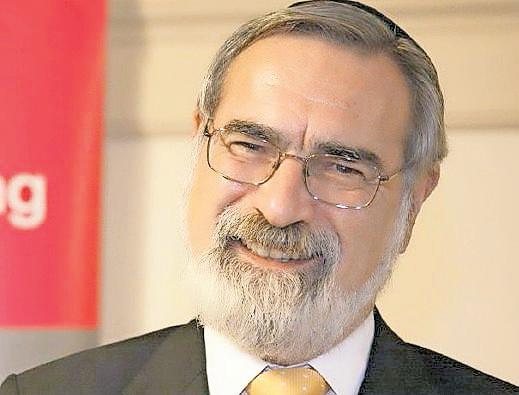
Among the festivals that give rhythm and structure to the Jewish year, Sukkot is unusual, unique.
A detail which had a significant influence on Jewish liturgy appears in the book of Deuteronomy:
Be joyful at your feast. … For seven days celebrate the Feast to the L-rd your G-d at the place the L-rd will choose. For the L-rd your G-d will bless you in all your harvest and in all the work of your hands, and your joy will be complete. (Deut. 16:14-15)
Speaking of the three pilgrimage festivals — Pesach, Shavuot, and Sukkot — Deuteronomy speaks of “joy,” but it does not do so equally. In the context of Pesach, it makes no reference to joy; in that of Shavuot, it speaks of it once; in Sukkot, as we see from the above quotation, it speaks of it twice. Is this significant? If so, how? (It was this double reference that gave Sukkot its alternative name in Jewish tradition: zeman simchatenu, the season of our joy.
The second strange feature appears in Parshat Emor. Uniquely, Sukkot is associated with two mitzvot, not one. The first:
Beginning with the fifteenth day of the seventh month, after you have gathered the crops of the land, celebrate the festival to the L-rd for seven days. … On the first day you are to take choice fruit from the trees, and palm fronds, leafy branches and willows of the brook, and rejoice before the L-rd your G-d for seven days. (Lev. 23:39-40)
This is a reference to the arba minim, the “Four Kinds” — palm branch, citron, myrtle and willow leaves — taken and waved on Sukkot. The second command is quite different:
Live in booths for seven days: All native-born Israelites are to live in booths, so your descendants will know that I made the Israelites live in booths when I brought them out of Egypt. I am the L-rd your G-d. (Lev. 23:42-43)
This is the command to leave our house and live in the temporary dwelling that gives Sukkot its name: the Festival of Tabernacles, booths, huts, an annual reminder of portable homes in which the Israelites lived during their journey through the wilderness.
No other festival has this dual symbolism. Not only are the Four Kinds and the tabernacle different in character: they are even seemingly opposed to one another. The Four Kinds and the rituals associated with them are about rain. They were, says Maimonides (Guide for the Perplexed, III: 43), the most readily available products of the land of Israel, reminders of the fertility of the land.
By contrast, the command to live for seven days in booths, with only leaves for a roof, presupposes the absence of rain. If it rains on Sukkot we are exempt from the command (for as long as the rain lasts, and providing it is sufficiently strong to spoil food on the table).
The difference goes deeper. On the one hand, Sukkot is the most universalistic of all festivals. The prophet Zechariah foresees the day when it will be celebrated by all humanity:
The L-rd will be King over the whole earth. On that day the L-rd will be one, and His name the only name. … Then the survivors from all the nations that have attacked Jerusalem will go up year after year to worship the King, the L-rd Almighty, and to celebrate the Feast of Tabernacles. If any of the peoples of the earth do not go up to Jerusalem to worship the King, the L-rd Almighty, they will have no rain. If the Egyptian people do not go up and take part, they will have no rain.
The Sages interpreted the fact that 70 bulls were sacrificed in the course of the festival (Numbers 29:12-34) to refer to the 70 nations (the traditional number of civilizations). Following the cues in Zechariah, they said that “On the festival [of Sukkot], the world is judged in the matter of rain” (Mishnah, Rosh Hashana 1:2). Sukkot is about the universal need for rain.
At the same time, however, it is the most particularist of festivals. When we sit in the succah we recall Jewish history — not just the 40 years of wandering in the wilderness, but also the entire experience of exile.
The succah is defined as a temporary dwelling (dirat arai). It is the most powerful symbol of Jewish history. No other nation could see its home not as a castle, a fortress or a triumphal arch, but as a fragile tabernacle. No other nation was born, not in its land, but in the desert. Far from being universalist, Sukkot is intensely particularistic, the festival of a people like no other, whose only protection was its faith in the sheltering wings of the Divine Presence.
It is almost as if Sukkot were two festivals, not one.
It is. Although all the festivals are listed together, they in fact represent two quite different cycles. The first is the cycle of Pesach, Shavuot and Sukkot. These tell the unique story of Jewish identity and history: the Exodus (Pesach), the Revelation at Mount Sinai (Shavuot), and the journey through the Wilderness (Sukkot). Celebrating them, we re-enact the key moments of Jewish memory. We celebrate what it is to be a Jew.
There is, however, a second cycle — the festivals of the seventh month: Rosh Hashana, Yom Kippur and Sukkot. Rosh Hashana and Yom Kippur are not only about Jews and Judaism. They are about G-d and humanity as a whole. The language of
the prayers is different. We say: “Instill your awe upon all Your works, and fear of You on all that You have created.”
The entire liturgy is strikingly universalist. The Days of Awe are about the sovereignty of G-d over all humankind. On them, we reflect on the human — not just the Jewish — condition.
The two cycles reflect the dual aspect of G-d: as Creator, and as Redeemer. As Creator, G-d is universal. We are all in G-d’s image, formed in His likeness. We share a covenant of human solidarity (the Noahide covenant). We are fellow citizens of the world G-d made and entrusted to our care. As Redeemer, however, G-d is particular. Whatever His relationship to other nations (and He has a relationship with other nations: so Amos and Isaiah insist), Jews know Him through His saving acts in Israel’s history: exodus, revelation and the journey to the Promised Land.
No sooner have we identified the two cycles than we see what makes Sukkot unique. It is the only festival belonging to both. It is part of the cycle of Jewish history (Pesach-Shavuot-Sukkot), and part of the sequence of the seventh month (Rosh HashanaYom Kippur-Sukkot). Hence the double joy.
The Four Kinds represent the universality of the festival. They symbolize nature, rain, the cycle of the seasons — things common to all humanity. The succah represents the singular character of Jewish history, the experience of exile and homecoming, the long journey across the wilderness of time.
In a way not shared by any other festival, Sukkot celebrates the dual nature of Jewish faith: the universality of G-d and the particularity of Jewish existence.
We all need rain. We are all part of nature, all dependent on the complex ecology of the created world. Hence the Four Kinds. But each nation, civilization, religion is different. As Jews we are heirs to a history unlike that of any other people: small, vulnerable, suffering exile after exile, yet surviving. Hence the succah.
Humanity is formed out of our commonalities and differences. As I once put it: If we were completely different, we could not communicate. If we were all the same, we would have nothing to say. Sukkot brings both together: our uniqueness as a people, and our participation in the universal fate of humankind.
This column is adapted from Rabbi Sack’s column on Parashat Emor.
We all need rain. We are all part of nature, all dependent on the complex ecology of the created world.
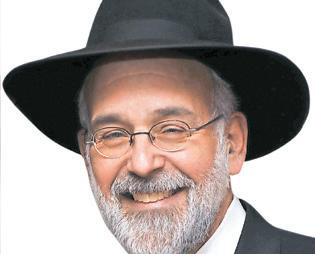
Jewish Star columnist
Seconds, then minutes. The boat overturned in the murky waters of the Yarkon River, trapping the woman who had been energetically rowing moments before. Even the air bubbles had ceased.
A small crowd of onlookers gathered along the banks, watching and pointing, yet none seemed willing to brave the waters and attempt to rescue the woman whose life was in danger. It was not a raging river, nor were the waters particularly deep, nor wide; rather, it was well
known that the waters were highly polluted and no one seemed willing to risk the potential illness that might result from entering the waters, even to save a life.
Finally, nearly four minutes after the woman had capsized, Avi Toibin, a 62-year-old passerby, realizing the stakes and, ignoring the danger, jumped in. He managed to wrest the woman’s now limp body from beneath the unforgiving waters, allowing for her evacuation to a nearby hospital where, for three days, it was unclear whether she would live or die.
Since that day in 2009, Yasmin Feingold, the 24-year-old Olympic kayaking champion, made a miraculous recovery, going on to win the national crew championship in 2010 and regain her title in the single Sculls in 2012.
She eventually met her savior, who was sub-
sequently awarded the president’s decoration for his selfless bravery.
In parasha Ha’azinu, which we read last week, we encountered one of the most challenging questions in the human experience.
“HaTzur tamim poalo’ ki kol deracahv mishpat; Kel emunah ve’ein avel, tzadik ve’yashar hu (The Rock [G-d] is perfect; all of his ways are just; a faithful G-d who does no wrong; righteous and moral is He).”
Perfect … and yet …
Equally challenging, Moshe notes that the people will one day grow fat and complacent, they will stop appreciating how blessed they are and even forget the source of all their blessings, attributing their accomplishments to themselves, and subsequently drifting away from their faith. This will result in great suffering for
the Jewish people who, distant from their true selves, will have only themselves to blame.
It would seem, then, that when trouble appears, we should search within our own actions for the cause. Seriously? Are we to blame for every travail that befalls seemingly good people? Is anyone who suffers meant to be perceived as evil?
This difficult question (if G-d is just, why do good people suffer) has challenged us since the birth of Judaism. When Abraham confronts G-d over the imminent destruction of S’dom, suggesting there may be innocents in S’dom, he says, “Will the Judge of the world not do justice?”
The Talmud (Berachot 7a) has no less than Moshe himself posing this question when asking G-d to see His glory, and notes that G-d’s See Freedman on page 22
torah
Rabbi DaviD EtENgoFF
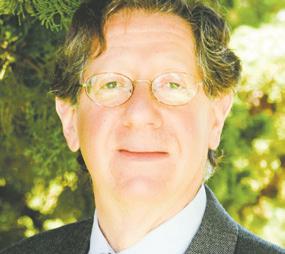
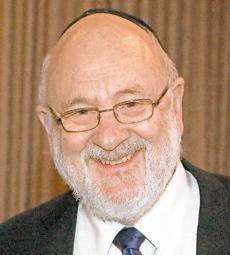
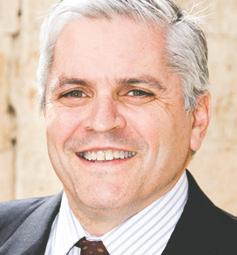
Jewish Star columnist
The Festival of Sukkot contains two major mitzvot — dwelling in the Succah on the night of the 15th of Tishrei, and the taking of the Arba’at HaMinim. These acts are in the halachic category of time-bound positive commandments which women may fulfill but not obligated to do so.
The following midrashic interpretation of the Arba’at HaMinim is intriguing in light of this ruling:
“The fruit of a beautiful tree [etrog],” this refers to Sarah, since the Holy One blessed be He honored her with good health in her old age. As the text states: “Now Abraham and Sarah were old, coming on in years.” (Bereishit 18:11) “Date palm fronds [lulav]” refers to Rivka, for just like a date palm tree has both fruit and thorns, so, too, did Rivka give birth to a tzadik (Ya’akov) and a ra’asha (Eisav). “A branch of a braided tree [hadas]” refers to Leah, for just like the hadas is filled with leaves, so, too, was
Leah [blessed] with many children. “Willows of the brook [arvei nachal]” refers to Rachel, for just like the arvei nachal wither before the other Arba’at HaMinim, so, too, did Rachel die before her sister [Leah]. (Midrash Vayikra Rabbah, Parashat Emor 30:10)
We are immediately struck by the midrash’s choice of the emahot as metaphorically representing the Arba’at HaMinim. After all, what is their connection since, as we have seen, women are exempt from mitzvot aseh sh’hazman grama?
In my view, the midrash followed this approach in order to teach us a crucial lesson: Judaism is comprised of two beautiful and equally vital massorot (traditions), the massorah of the fathers and the massorah of the mothers. Therefore, it is fitting and proper to compare the Emahot to the Arba’at HaMinim.
In modern times, there was no greater exponent of this approach than The Rav, Rabbi Joseph B. Soloveitchik.
“People are mistaken in thinking that there is only one massorah and one massorah community, the community of the fathers. It is not true. We have two massorot, two traditions, two communi-
ties, two shalshalot ha-kabbalah [chains of Tradition] — the massorah community of the fathers and that of the mothers. …
“What kind of a Torah does the mother pass on? I admit that I am not able to define precisely the masoretic role of the Jewish mother. Only by circumscription I hope to be able to explain it. Permit me to draw upon my own experiences.”
At this point we are privy to the Rav’s deepest personal reminiscences of his beloved mother:
“I used to have long conversations with my mother. In fact, it was a monologue rather than a dialogue. She talked and I “happened” to overhear. What did she talk about? I must use a halakhic term in order to answer this question — she talked me-inyana de-yoma [about the halakhic aspects of a particular holy day]. I used to watch her arranging the house in honor of a holiday. I used to see her recite prayers. I used to watch her recite the sidra every Friday night and I still remember the nostalgic tune. I learned from her very much.”
What was the essence of that which the Rav learned from his mother? What gift did she give him that transformed his perception of the world?
As he states in his inimitable manner:
“Most of all I learned that Judaism expresses itself not only in formal compliance with the law but also in a living experience. She taught me that there is a flavor, a scent and warmth to mitzvot. I learned from her the most important thing in life. — to feel the presence of the Almighty and the gentle pressure of His hand resting upon my frail shoulders.
“Without her teachings, which quite often were transmitted to me in silence, I would have grown up a soulless being, dry and insensitive.”
It is, and perhaps always has been, the unique privilege of Jewish women to enable our people to “feel the presence of the Almighty and the gentle pressure of His hand resting upon [our] frail shoulders.”
Therefore, when we rejoice with the Arba’at HaMinim this Sukkot, let us remember the midrash’s essential and powerful message to embrace both the massorah of the mothers and the massorah of the fathers, so that we may fulfill this mitzvah as a “living experience” in all its “flavor, scent and warmth.”
With Hashem’s help, may we be zocheh to do so. V’chane yihi ratzon.
Rabbi DR. tzvi
HERsH wEiNREb
Orthodox Union
Fear and trembling — those have been our primary religious emotions during the Yamim Nora’im, the Days of Awe when, facing divine judgment, we felt vulnerable, insecure, and anxious about what the coming year has in store for us.
After all, in our prayers, we actually asked of the Almighty that he “cast His fear over all of His handiwork, and His awe over all of His crea-
tures.”
But Judaism does not want us to remain stuck in these overwhelming emotions of anxiety and uncertainty. And so our Torah has provided us with the festival of Sukkot, a time not for fear and trembling, contemplation and soul-searching, but for serenity and joy. We emerge from what mystics call the “dark night of the soul” into the bright light of happiness.
The central symbol of Sukkot is the sukkah. What is the meaning of this simple symbol? And how does it inspire this spiritual attitude of trust?
Rabbi Samson Raphael Hirsch said it best:
The building of the sukkah teaches you trust in G-d. You know that whether men live in huts or in palaces, it is only as pilgrims that they
dwell. You know that in this pilgrimage G-d is our protection. The sukkah is a transitory hut that one day will leave us or we will leave it. The walls may fall, the leafy covering may wither in this storm, but the sheltering love of G-d is everywhere. You dwell in the most fleeting and transitory dwelling as calmly and securely as if it were your house forever.”
And so we redirect our orientation to G-d, no longer the harsh judge, nor even the compassionate judge. He is now our shelter and protector, the permanent “Rock of Israel” in the transitory experience we call life.
We effect this shift by using the symbols the holiday provides us, chief among them the sukkah.
How does the sukkah work its wonders? The secret is to enter it respectfully and reflectively, spend as much time as possible in its shade, and invite into it two types of guests: friends and family, with special hospitality for those who may never have enjoyed a sukkah experience, and we also symbolically summon the ushpizin, the “ghost guests,” our ancestors going back to Abraham and Sarah.
We immerse ourselves in the sukkah, encountering the cherished memories of those who sat in other sukkot before us, ancestors recent and long gone, and our usual companions who all participated as we do in that protracted pilgrimage known as Jewish history.
A version of this column was published in 2013.
Kosher bookworm
alaN JaY gERbER
Jewish Star columnist
Yom Kippur has passed and the hints of a winter chill envelop us with every step.
The weather now garners increased attention as we are about to eat our meals in the sukkah. Any forecast of rain casts a pall upon our holiday plans. Yet, rain is a commodity that we will soon pray for and welcome as a gift and
sign of Divine grace, especially for our brothers and sisters in Eretz Yisrael.
A book entitled “Waiting for Rain” by Dr. Bryna Jocheved Levy, published by the prestigious Jewish Publication Society, is a series of elegantly written essays and shiurim about the Tishrei festivals, all focused on the coming rainy season. What follows is a brief summery of some of the most salient points found in the book.
The book’s essays are based on a series of Hoshana Rabbah shiurim given by Levy at the Matan Women’s Institute for Torah Studies in Jerusalem. According to Levy, among the influences that informed her thinking were her
mentors Dr. Nechama Leibowitz of blessed memory and Rabbanit Malke Bina, the founder and guiding spirit of Matan.
Levy describes in detail Matan’s work as a yeshiva gavohah for women, affording them the opportunity to engage in Torah study at every level, thus helping women approach our faith’s beliefs with both an emotional and intellectual understanding of Judaism’s basic texts.
“Waiting for Rain” holds true to its title, as each essay fleshes out the themes of the Tishrei holidays through stories and guided readings.
Focusing on the shiurim dealing with Hoshana Rabbah and Shemini Atzeret, I will highlight
several themes worthy of your attention. Particularly relevant are the prayers for geshem (rain) as a response to our acts of teshuvah
Prayer is a key element in our faith, involving our law codes more than any other ritual activity. Levy notes this sharply by citing the famous Rav Zadok haCohen of Lublin who taught that it was Abraham who offered the first petitionary prayer in the Bible. Based on Bereishit Rabbah, Rav Zadok contrasts Abraham’s prayer offered for the people of Sodom who were about to be destroyed for their sins, to the behavior of Noah, who stood silently when G-d
Jewish Star Associate: Nechama Bluth, 516-622-7461 ext 241.
Content: The Publisher endeavors to ensure that this newspaper’s content is within the bounds of normative halachah and hashkafah. Any reader who feels anything we publish may be inappropriate in this regard is urged to bring the item in question to the attention of the Publisher.
Advertising is accepted at the sole discretion of the Publisher. The Publisher expects all advertising to conform to standards of content appropriate for distribution in an Orthodox community.
Send us your news!
News@TheJewishStar.com
For information about advertising!
Publisher@TheJewishStar.com
Kashrut: The Jewish Star is not responsible for the kashrut of any product or establishment featured in its pages. If you have questions regarding any establishment or product, including its supervision, please consult your rabbi for guidance.
Submissions: All submissions become the property of The Jewish Star and may be edited and used by the Publisher, its licensees and affiliates, in print, on the web and/or in any media that now exists or will exist in the future in any form, including derivative works, throughout the world in perpetuity, without additional authorization or compensation. The individual or entity submitting material affirms that it holds the copyright or otherwise has the right to authorize its use in accordance with The Jewish Star’s terms for submissions.
Opinions: Views expressed by columnists and other writers do not necessarily reflect the position of the Publisher or of The Jewish Star LLC.

Distribution: The Jewish Star is available free in kosher food establishments, stores, synagogues, and curb-side newsboxes on Long Island, in New York City and elsewhere. To request free delivery to your location, write Publisher@TheJewishStar.com.
Subscriptions: By first class mail in the continental United States, $170 for one year or $85 for six months, prepaid. Rate subject to change.
Copyright: All content is copyright and may not be republished or otherwise reproduced without written permission by The Jewish Star LLC; to do so without permission is against the law and against halacha. To inquire about content reproduction write to Publisher@TheJewishStar.com. The Jewish Star subscribes to the JNS news service. It, or its contributors, own the copyrights on material attributed to them. The length and content of JNS material and all other submitted material may be edited by The Jewish Star.
Columnists: Henry M. Abramson, Dean at Touro College in Brooklyn; Jerold S. Auerbach, author (“Print to Fit: The New York Times, Zionism and Israel”); Edwin Black, author (“IBM and the Holocaust”); Ruthie Blum, Israeli journalist; Ben Cohen, NY-based journalist; Richard L. Cravatts, Freedom Center Journalism Fellow in Academic Free Speech; Nave Dromi, director Middle East Forum; Stephen M. Flatow, VP Religious Zionists of America whose daughter was murdered in an Iranian-sponsored Palestinian terrorist attack; Caroline Glick, Israel Hayom columnist; Daniel Greenfield, Shillman fellow at the Freedom Center; Ricki Hollander, CAMERA senior analyst; Gilead Ini, CAMERA senior analyst;
Lyn Julius, author (“Uprooted: How 3,000 years of Jewish Civilization in the Arab World Vanished Overnight”); Benjamin Kerstein,writer and editor in Tel Aviv; Yechiel Leiter, DirectorGeneral, Jerusalem Center for Public Affairs; Eric R. Mandel, director MEPIN. Clifford D. May, founder and president, Foundation for Defense of Democracies; Rafael Medoff, director David S. Wyman Institute for Holocaust Studies; Fiamma Nirenstein, fellow at Jerusalem Center for Public Affairs; Melanie Phililps, British journalist; Thane Rosenbaum Distinguished University Professor at Touro University; Victor Rosenthal, Israeli contributor to White Rose Magazine; Nadav Steinman, chair, International Legal Forum; Sarah N. Stern, founder and president, Endowment for Middle East Truth (EMET); Paul Schneider, American Jewish International Relations Institute board member; David Suissa, editor, Jewish Journal; Jonathan S. Tobin, editor-in-chief of JNS; Gil Troy, author of “Theodor Herzl: Zionist Writings.”
To contact our columnists, write: Publisher@TheJewishStar.com
Member American Jewish Press Association. This newspaper contains words of Torah; please dispose of properly.
Meir was more than just a Zionist heroine and the woman who had raised the money to help fight the 1948 War of Independence and absorb refugees from Europe and the Arab and Muslim worlds. She was everyone’s Jewish grandmother, combining tough love and tender care for the Jewish people.
There is an axiom in journalism that you never know when you’re going to do the one thing for which you will be remembered above all others. Few lives exemplify that lesson better than that of Golda Meir, Israel’s first female prime minister.
By any reasonable historical standard, hers was an extraordinary life of achievement in which, as much as any other person, she exemplified the saga of the Jewish people during the 20th century.
Yet few accorded her the status of “founding mother” of Israel alongside her longtime colleague David Ben-Gurion or even her political rival, Menachem Begin. The reason for that was the tragedy of the Yom Kippur War, which so many Israelis blamed on her. Now, 50 years after that trauma, a new film and two new books are making the argument that it’s time to restore her reputation and give this extraordinary figure her due.
For Diaspora Jews, especially Americans old enough to remember her as one of the most iconic Israeli leaders of her generation,
But to most Israelis, her reputation was very different. Polls have consistently shown that she is considered among the worst prime ministers ever to serve. That damning verdict was the fault of the Yom Kippur War that happened on her watch.
Meir was judged a failure for having chosen to sit back and let Egypt and Syria launch attacks on the Jewish state on the holiest day of the year. The 2,656 Israelis who died in that war, along with the 7,251 wounded and 294 who fell into the hands of the enemy as prisoners — staggering numbers for what was then a country of only 3.3 million where most served in the armed forces — were laid at her feet.
She was re-elected as prime minister, albeit with a diminished majority, in an election held only weeks after the firing stopped in December 1973, and she was absolved of responsibility for the country’s failures by the Agranat Commission that investigated the conduct of the war. But the postwar mass protest movement against the government and its leaders — chiefly, Minister of Defense Moshe Dayan and Meir — created such a furor that she felt forced to resign in April 1974. She died four years later, in 1978, and her standing among Israelis never recovered.
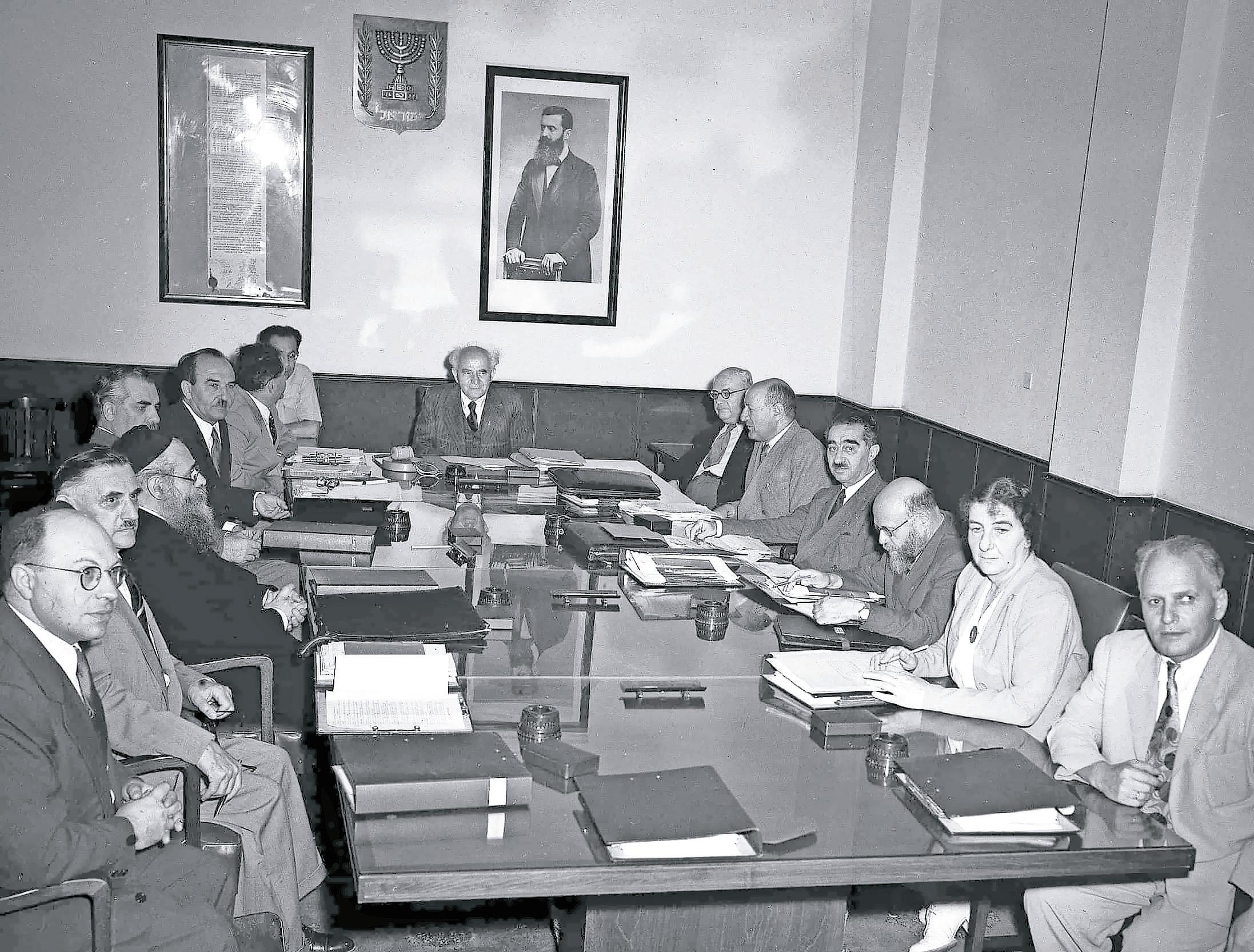
The families of the fallen never forgave her, nor did many of the veterans who felt the war — its prelude, the confusing “war of the generals” that took place during the 18 days of combat and then its ending just as Israel had finished turning the tables on its foes — illustrated the bankruptcy of the country’s establishment, of whom the then-75-year-old prime minister was the leading symbol. The war was the crucial turning point that let to the mahapach or “upheaval” of 1977 when the election victory of Menachem Begin and the Likud Party ended the long rule of the Labor Zionists that dated back to the beginnings of the pre-state era of Israeli history.
Nor was Meir beloved by the Israeli left. They improbably blamed her and her justified
hardline stand against her nation’s enemies — particularly, the Palestinian Arabs — for the failure to make peace before October 1973.
Born in 1898 with the surname Mabovitch in the Russian empire in what is now Ukraine, she immigrated with her family to the United States as a child, and grew up to be a teacher and Socialist Zionist activist. She made aliyah in 1921 with her husband, Morris Meyerson, and over the course of a lifetime of service to Labor Zionism and then the newborn State of Israel, she played a key role in all of the political and diplomatic struggles of the young nation. She served as Israel’s first ambassador to the Soviet Union; Minister of Labor; its longserving foreign minister (1956-66); and then its prime minister from 1969 to 1974.
That record of accomplishments was either forgotten or judged as insignificant when compared to the anger that Israelis felt about the first of their wars in which they weren’t
able to claim complete victory. Indeed, Israelis still seem to think of it as not just a setback but a moral judgment of biblical proportions in which they were severely punished for their post-1967 Six-Day War hubris.
That this would be so is one of the cruel ironies of history. By any military standard and even those of politics, Israel did emerge from the war as a victor. Its troops were closer to Cairo and Damascus at the end of the war than at the beginning. And the tactical triumphs of the Israel Defense Forces were nothing compared to the long-term strategic results of the fighting.
Israel’s victory essentially ended the threat of another conventional military conflict in which the largest and most powerful Arab nation — Egypt — might launch a strike aimed at destroying the Jewish state. By contrast, Egyptians, whose forces, by any objective standard
Meir’s relentless insistence on defending her country’s interests — preferring tangible strategic assets to the sympathy of an international community — makes just as much sense now as it did then.
JONATHAN S. TObiN
JNS Editor-in-Chief
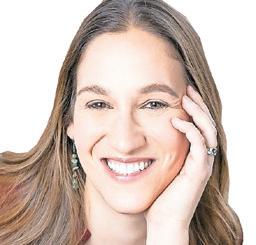
Princeton University president Christopher Eisgruber focused on the virtues of freedom of expression and diversity in his commencement speech earlier this year, denouncing the national proliferation of “educational gag orders” aimed at “enabling politicians to control what professors can teach or publish.”
Sadly, this semester, that sense of inclusion doesn’t appear to extend to all students at Princeton, the University of Pennsylvania and other campuses where classes and academic offerings have been introduced that will marginalize Jewish students under the guise of academic freedom.
Let’s be clear: Academic freedom is not a given unless it also aligns with academic integrity. It’s a concept premised on two tenets: true subject-area expertise by faculty and their ability to analyze a topic with detached objectivity. Without these tenets, there is no foundation for academic freedom.
This guiding light didn’t arise from today’s manicured grounds of Ivy League schools. It’s an academic standard dating back centuries.
Unfortunately, there is also a very different campus legacy that dates back centuries that, instead, seems to be on display: hostility towards Jewish students.
At Penn, four departments in the College of Arts and Sciences are among the sponsors of the “Palestine Writes” Literature Festi-
val that was held last week. This is an important and appropriate topic for a university to explore and for students to study.
However, the festival wasn’t meant to just focus on Palestinian rights and culture. It featured multiple speakers with long histories peddling antisemitic rhetoric — including Pink Floyd’s Roger Waters, who was condemned by the US State Department this year for his “long track record of using antisemitic tropes to denigrate Jewish people;” and writer Susan Albahawa, who called a Jewish American victim of terrorism “human garbage.”
The Penn festival comes weeks after Princeton launched a course on “Decolonizing Trauma Studies From the Global South,” in which students are required to read a book by Jasbir Puar, a Rutgers University professor who has falsely accused Israeli soldiers of deliberately mutilating Palestinian civilians.
Framing Israel as a kind of Jewish vampire feasting on Palestinians’ bodies is a mainstay on extremist platforms and Iranian media. Rooted in the ancient mythology of rabbis hunting down Christian children to drain their veins for rituals, much real blood has been spilled over the centuries due to this fiction.
Such problems aren’t isolated to these two Ivy League schools 40 miles apart. We have seen a surge in Jew-hatred on campuses across the country in recent years, including many
incidents in which discussions about Israel have become outright demonization laden with antisemitic tropes. Too often, these episodes happen as part of academic discourse or even inside the classroom, where Jewish students feel targeted in ways that professors would never tolerate against other groups.

Whether it’s the conference at Penn or the coursework at Princeton, these efforts are not about exploring the underlying issues of the Israeli-Palestinian conflict or exposing students to controversial texts or challenging ideas.
Rather, our finest academic institutions have lost sight of the basic tenets underpinning academia — that scholarly work must be historically credible and factually legitimate. Teaching at these institutions, in person or through authored work, is a privilege that should be measured by those qualifications.
When a curriculum or academic festival includes viewpoints of Israel that read more like horror-fantasy fan-fiction than credible scholarship, it begs the question of academic oversight. Conference panelists and syllabi selection must be transparently validated by subject matter experts adept in conducting rigorous evaluations.
If basic standards of academic integrity are undermined and academic peer review is politicized, students aren’t taught critical thinking; they are taught performative political theater. And those who don’t drink the Kool-Aid on these issues are silenced, ostracized and sometimes even physically attacked.
We have seen too often in recent years that conspiracy theories prompt real-world events and violence.
It would be wise for all universities to practice what President Eisgruber preached in his address at Princeton this spring and “stand up and speak up together for the values of free expression and full inclusivity for people of all identities.”
The authors are co-founders of co-founders of Boundless.
Viewpoint BEN COHEN

In the Middle East, antisemitism emanates from the corridors of power, walking hand in hand with corruption, political repression, torture, racism and other reprehensible features of authoritarian rule.
There was a pertinent observation offered up in an opinion piece published last week by the French magazine Marianne where Martine Gozlan wrote that “there are kindness weeks and human rights days, but right now, we are in the middle of the antisemitism month of Arab leaders.”
Gozlan was referring to two outbursts by Arab leaders at both ends of the Middle East: Palestinian Authority head Mahmoud Abbas, who declared during a speech in August that the Nazi Holocaust had been provoked by the Jews’ “social role;” and President Kais Saeid of Tunisia, who detected the hidden hand of international Zionism behind the floods that devastated neighboring Libya earlier this month.
We live, of course, during a time when the mild taboo upon antisemitism that prevailed after World War II has been shattered, leaving tech billionaires, rock musicians and minor parliamentarians on left and right to articulate and enable antisemitism of the most venomous sort, all too often using social media to do so. But that realization shouldn’t mask the distinctive origins and strategic purpose of the antisemitism in the Arab and wider Muslim worlds that was so neatly expressed by Abbas and Saied.
It’s important to remember the key difference, contextually, between Arab and Western antisemitism. In Western countries, as well as in Eastern Europe, Jews were a largely defenseless
minority who were nonetheless assigned near mystic powers by an assortment of pogromists and ideologues.
In the Middle East, while the same myths about disproportionate Jewish power have won over the masses, the Jews whom they confronted — and still do — are not powerless. These Jews are, through the existence of the State of Israel, empowered and sovereign — not only in possession of an army (and navy and air force), but one that is supremely capable of punishing the enemy and winning the wars it fights.
The historic Arab failure to eliminate Israel from the map of nations is one key reason for the persistence of antisemitism in the rhetoric of some Arab leaders. In that regard, antisemitic ideology has played a useful dual role.
Firstly, it allows Arab leaders to distract their publics from real issues like employment, social welfare, environmental degradation and education by pointing to “the Jews” as the ultimate source of their complaints.
Secondly, the widespread acceptance of conspiracy theories over the extent of Jewish power enables Arab leaders to explain away, far more easily than is justified, their own failings.
There is another significant difference between antisemitism in the West and outside it that further explains the Abbas and Saeid outbursts.
In the West, much of the time, antisemitism is a feature of disgruntled social movements that go through troughs and peaks in terms of their popularity, but whose grasp on power is fleeting; rarely do they win a sustained engagement with genuine political power. But in the Middle East, antisemitism emanates from the corridors of power, walking hand in hand with corruption, political repression, torture, racism and other reprehensible features of authoritarian rule.
Indeed, Abbas’s response to the group of Palestinian intellectuals and influencers who publicly objected to his latest verbal assault on the Holocaust is a perfect example of this tendency.
No matter that this group forthrightly condemned Israeli “occupation” and “apartheid” in its statement, thereby repeating antisemitic tropes about Israel even as they condemned antisemitism. They had the temerity to confront Abbas, the Palestinian caudillo, over his crude, cringeworthy antisemitism, and were therefore worthy of denunciation as the “shame of the nation.”
Mark as well how Abbas’s antics perfectly fit the approach of Arab dictators towards the Jewish state; when you are unpopular and when your disapproval ratings are at an eye-watering 73 percent, as are his, point the finger at the real culprits.
Saeid, meanwhile, operates with a similar logic. A conservative legal scholar who came to power in 2019 and has stalled Tunisia’s hesitant progress towards democracy ever since, his remarks about the floods in Libya — the fruit of Storm “Daniel,” a Jewish name that was chosen, said Saeid, because “the Zionist movement has infiltrated our minds” — are the second occasion this year that he has expressed antisemitic sentiment.
On the first occasion, back in May, he told a meeting of Tunisia’s National Security Council that a deadly gun attack upon worshippers at a historic synagogue on the island of Djerba was not motivated by antisemitism. Mocking those “who talk about antisemitism when we are in the 21st century,” Saeid accused those who raised the issue of antisemitism of wanting “to sow division to benefit from this discourse.”

The following day, in defiance of the actual historical record, he doubled down by pointing
to supposed Jewish ingratitude, insisting that the Jews of Tunisia who survived the 1942–43 Nazi occupation did so because of the goodwill of their neighbors and not because the Allied armies trounced the Germans in North Africa.
As well as being an antisemite, Saeid is also a racist who has whipped up feelings against black migrants from Sub-Saharan Africa. In a speech in February, he claimed that “hordes of irregular migrants” had come to Tunisia “with all the violence, crime and unacceptable practices that entails.”
He argued that this was an “unnatural” situation, part of a criminal plan designed to “change the demographic make-up” and turn Tunisia into “just another African country that doesn’t belong to the Arab and Islamic nations anymore.”
Following this rant, angry mobs attacked African migrants in several cities, while the police detained up to 1,000, deporting many of them.
This Islamist and Arabist form of supremacism — with its disdain for Africa’s black majority population and its barely concealed loathing of Jews — is no less threatening than any other form of bigotry. As long as it is left unchecked and unchallenged, we can anticipate many more “Antisemitism Months” from Arab and Muslim national leaders.
There is a significant difference between antisemitism in the West and outside.Tunisian President Kais Saied. Houcemmzoughi, WikiCommons
work. Israel’s security and stability will become a regional and global interest.
The most interesting aspect of MBS’s statements about the prospect for peace with Israel was how he presented Israel on the one hand and the Palestinians on the other.
Saudi Crown Prince Mohammed bin Salman (MBS)’s interview with Fox News’ Bret Baier was an inflection point in global affairs. There were world affairs before the interview and world affairs after the interview.
The fireworks started immediately, and a major focus was Iran.
Saudi Arabia and its fellow Sunni Arab states oppose the US’s nuclear appeasement of Tehran just as fervently as does Israel. But over the past decade, the Sunnis opted to let Israel do the heavy lifting. They gave off-therecord briefings to reporters backing Prime Minister Benjamin Netanyahu’s protests, but they didn’t take the stage themselves.
In a nutshell, the Obama-Biden policy is to enable Iran to become a nuclear threshold state — and beyond. The idea, as explained at various points by former President Barack Obama and his senior aides, was that Iran acted as a rogue state because of Israel’s alleged nuclear arsenal. The key to stabilizing the Middle East, they contended, was to realign the US away from Israel and its traditional Sunni Arab allies and towards Iran.
Empowering Iran, first and foremost through nuclear appeasement, would enable Iran to balance Israel. Just as the balance of terror between the US and the Soviet Union during the Cold War prevented nuclear war, so a balance of terror between Israel and Iran would prevent nuclear war.
Efforts by Israelis and other opponents of Obama’s vision to explain the absurdity of the former president’s comparison made no headway. Obama and his advisers refused to acknowledge that Iran is not a status quo power — it is a revolutionary regime that sees itself as the spearhead and leader of an Islamic supremacist empire, which it has built through terror, radicalization and war. As a result, the US-USSR mutually assured destruction nuclear deterrence model cannot work in the Iranian case.
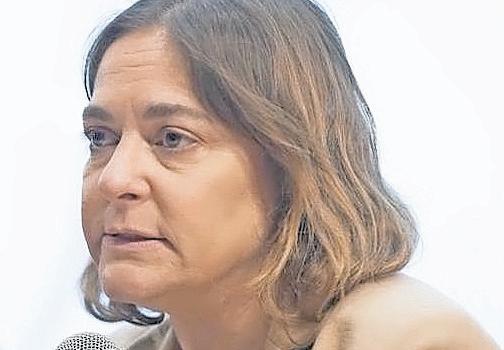
Today, President Joe Biden and his team of Obama alumni are pursuing Obama’s vision with redoubled energy, and the results have been disastrous, with Iran on the brink of a nuclear arsenal.
MBS didn’t require a long speech to explain why the administration’s policy can’t work. He did it in one sentence.
Bret Baier asked him how Saudi Arabia would respond to a nuclear-armed Iran. He responded simply, “If they get [a nuclear weapon], we will have to get one, for security reasons, for balancing power in the Middle East.”
MBS is not alone. If Iran gets a nuclear weapon, the Middle East will become fully nuclearized. Regime after regime will procure nuclear weapons to guard against other regimes that already have them.
By bluntly stating the obvious, MBS showed that the Biden administration’s Iran policy is leading to a fully nuclearized Middle East. Now that the truth is out, Biden and his advisers have a choice. They can stay on their
current course and be held responsible for their actions, or they can reverse course and adopt a strategy that will prevent Iran from becoming a nuclear-armed state and keep the Middle East nuclear free, pro-American and stable.
During his meeting last Wednesday, Netanyahu set out the strategy for blocking Iran’s (short) path to a nuclear arsenal. Netanyahu said a winning strategy has three components: “A credible military threat, crippling sanctions and supporting the brave men and women of Iran who despise that regime and who are our real partners for a better future.”
It’s been one year since the Iranian regime murdered Mahsa Amini for failing to cover her hair in accordance with the regime’s misogynistic regulations. Amini’s torture and death sparked a massive protest movement by Iran’s youth. At great risk — and ultimately great cost — those brave young people brought the regime to the brink of collapse as military units broke ranks and joined the protesters demanding freedom.
Rather than grab the opportunity to free Iran and the world from the Islamic regime, the Biden administration doubled down on its nuclear appeasement. On Monday, the administration paid the regime a $6 billion bribe. It released Iranian terrorists and nuclear proliferators held in US prisons in exchange for five American hostages held in Iran. More billions are said to be on their way.
Iran repaid the US for its appeasement by doubling down on its aggression.
In his UN speech last Tuesday, Iranian President Ebrahim Raisi didn’t thank the US for its generosity and good faith. He renewed the regime’s commitment to murdering US officials, including former Secretary of State Mike Pompeo, for their role in the 2020 assassination of Iran’s terror chief Qassem Soleimani.
How Biden and his team will respond to MBS’s challenge is difficult to determine. To date, they have shown no willingness to shift course. But however they proceed, after MBS’s interview they will do so without the advantage of ambiguity. Everyone now knows where their policy is leading.
Iran isn’t the only policy area where MBS directed a warning to the administration. His admission that Saudi Arabia will get nuclear weapons if Iran does went along with his argument for a mutual security treaty with the US Noting that Saudi Arabia is by far the largest purchaser of American military platforms,
he explained that the purpose of a security guarantee is both to assure supply for the Saudis and protect American military industries. It would be a shame to buy from others, MBS said, but we will if the US won’t commit to selling us what we want.
This brings us to Saudi Arabia’s demand for a civil nuclear program. There’s a lot of talk about what the US and Israel might accept and what they cannot accept. But MBS’s statement rendered all of it a bit beside the point. The cat is out of the bag. No, Riyadh doesn’t want to develop radioactive isotopes for medical research. It wants the bomb if Iran gets it.
If the US is prepared to let Iran go nuclear, then it needs to be prepared for Saudi Arabia (and everyone else) to follow suit. Otherwise, in addition, the US will lose the Saudi arms market. So, either the US stands with Saudi Arabia and blocks Iran from going nuclear or Saudi Arabia will find other weapons suppliers and get the bomb itself.
The Biden administration and the Israeli left have presented the prospects of a USbrokered peace deal between Israel and Saudi Arabia as a means to advance the Palestinians at Israel’s expense or, at a minimum, the expense of Netanyahu’s right-religious coalition. The deal as they have telegraphed it would require Israel to make massive territorial concessions to the Palestinians.
The basic idea behind the administration’s discourse on a Saudi-Israel deal is that Israel is the problem and the Palestinians are the solution. To get to peace with Saudi Arabia, Israel first has to placate the Palestinians. This is the opposite of the vision behind the Saudibacked Abraham Accords, which removed the Palestinians’ veto over Arab-Israel peace. It viewed the Palestinians as an obstacle to peace and Israel as the goal.
Given the US’s position, MBS could have been expected to talk about a “two-state solution,” as Biden and his advisers do incessantly. He might have been expected to set out precisely where Israel is supposed to surrender territory to the Palestinians.
Baier pressed MBS on the Palestinian issue. MBS’s responses signaled strongly that he is adhering to the Abraham Accords framework.
MBS, to be sure, insisted that “the Palestinian issue is very important.” But notably, he never mentioned a Palestinian state or a two-state solution. He never mentioned Israeli territorial concessions. He certainly didn’t portray Israel as an obstacle to peace. Instead, he focused on Israel.
MBS said that the Saudis “hope to reach a peace where it will ease the lives of the Palestinians and get Israel as a player in the Middle East.”
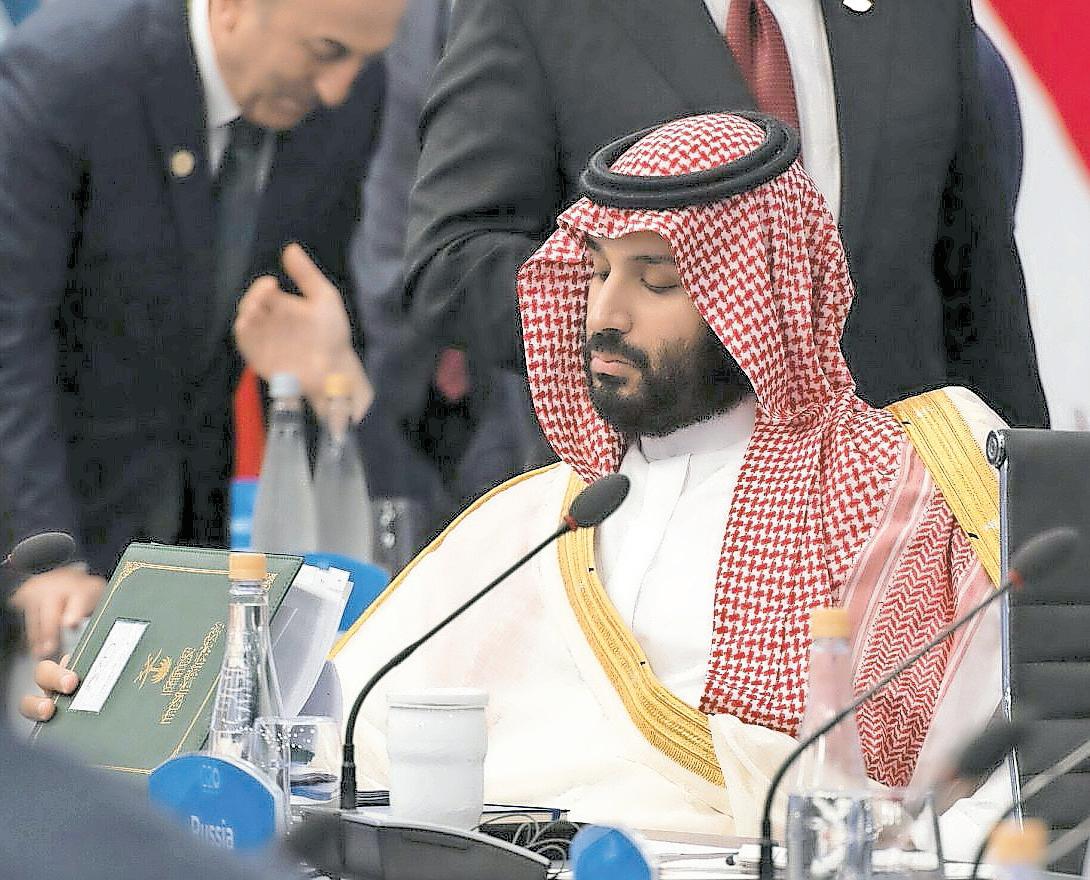
Israel is the “player,” the sought-after partner. The Palestinians need to be helped.
By the time MBS’s interview was broadcast, Netanyahu’s visit was already a massive and, in many ways, shocking success. As he prepared for his trip, Netanyahu faced two major challenges: A hostile Biden administration and a massively funded group of Israeli anarchists who hoped to capitalize on his visit to escalate their now ten-month political war against him and his government. When Netanyahu flew to San Francisco on Sunday night, it was far from clear that he would survive their multi-million-dollar campaign to demonize and discredit him.
By Thursday morning, it was fairly clear that the anarchists were a spent force, even if they didn’t realize it. Netanyahu had restored his position in the first row of global statesmen.
This brings us to the third major issue MBS discussed: A US-brokered peace with Israel. Here too, MBS’s statements were nothing less than extraordinary. It isn’t that MBS promised a peace deal imminently. Indeed, it’s possible that it won’t happen for a long time. It’s far from clear that his father King Salman sees Israel as MBS does. But MBS made no effort to hide how he sees Israel.
The first concrete topic MBS raised was the rail and communications link from India through the UAE, Saudi Arabia, Jordan and Israel that will reduce shipping from Asia to Europe by three to six days. The project, officially launched last week at the G20, is being presented as an Indian-Saudi-European project, and it is. But more momentous than a logistics train, the infrastructure link spells the effective end of the Arab-Israeli conflict. When the project becomes operational, Israel will be the hub of the transcontinental net-
Baier asked MBS twice if he believed that he can do a deal with Netanyahu. The question was not explicit. But it was obvious that Baier was asking MBS what he thought of the left’s efforts to sow domestic chaos by claiming that Netanyahu’s electoral victory is unacceptable. MBS wouldn’t take the bait. He responded that he will deal with whoever is the leader of Israel. In other words: Of course he can make a deal with Netanyahu. That’s who he’s negotiating with.
During Israel’s 2014 war against the Hamas terror state in Gaza, Obama tried to force Netanyahu to succumb to Hamas’ ceasefire demands. He was blindsided when Saudi Arabia, the UAE and Egypt all stood with Israel against Hamas (and Obama) and rejected Hamas’ stipulations.
Wednesday may be remembered as the day the MBS-Netanyahu partnership came into full view. With Netanyahu at Biden’s side in New York and MBS on American television, the two leaders explained what can happen if the US stands with its allies and what will happen if America stands instead with Iran.
Netanyahu and MBS explained what can happen if the US stands with its allies and what will happen if America stands instead with Iran.
caroline glick
Israel Hayom
The Saudi crown prince made it clear that he won’t accept American appeasement of Iran.
Mount Sinai South Nassau and the Town of Hempstead are bringing Flu vaccines to your community Additional information about the mobile unit and its schedule are posted on the hospital’s Facebook page @MountSinaiSouthNassau


Baldwin Senior Center – Monday, October 2
10am-2pm, 810 N. Grand Ave, Baldwin, NY 11510
Elmont Senior Center – Tuesday, October 3
10am-2pm, 138 Elmont Rd, Elmont, NY 11003
Lido Senior Center – Tuesday, October 10
10am-2pm, The Sands at Lido Beach, Lido Beach Town Park, 630 Lido Blvd Ste 2, Lido Beach, NY 11561
Green Acres Senior Center – Friday, October 13
10am-2pm, 400 Flower Rd, Valley Stream, NY 11581
Levittown Senior Center – Monday, October 16
10am-2pm, 555 N Newbridge Rd, Levittown, NY 11756
Merrick Senior Center – Wednesday, October 18
10am-2pm, 2550 Clubhouse Rd, Merrick, NY 11566
Uniondale-Hempstead Senior Center – Monday, October 30
10am-2pm, 840 Uniondale Ave, Uniondale, NY 11553
Bellmore Senior Center – Tuesday, October 31
10am-2pm, 2000 Bellmore Ave # A, Bellmore, NY 11710
Uniondale-Merrick Senior Center – Wednesday, November 1
10am-2pm, 750 Jerusalem Ave, Uniondale, NY 11553
Franklin Square Senior Center – Monday, November 6
10am-2pm, 1182 Martha Pl, Franklin Square, NY 11010
Merrick Senior Center – Wednesday, November 8
10am-2pm, 2550 Clubhouse Rd, Merrick, NY 11566
For more information, call Mount Sinai South Nassau’s Department of Community Education at 516-37 7-5333
Continued from page 14
public at “roughly, perhaps 10-15%” of the population. Supporters, he admitted, are “mostly an older generation,” who are “religiously conservative and buy into the narrative of the state, i.e., this is an Islamic society” so a “good Muslim” must “listen to the supreme leader.” However, he said, the “younger generation is very skeptical and much more independent-minded.”
Given the recent mass protests in Iran, this younger generation has not been stymied by Western sanctions.
Moreover, Hashemi admitted that the Iranian regime survives not because of sanctions but in spite of them. He noted that the apparatchiks of “any authoritarian political system that has a lot of money” like the oil-rich Islamic Republic, “support the system, not because they ideologically buy into the narrative of the authoritarian regime, but because their livelihood” depends on the “political status quo.” In particular, the regime’s Islamic Revolutionary Guards Corps controls an estimated 40% of the Iranian economy and therefore has “a lot to fight for.”
It is this corruption and avarice that hampers Iran’s pro-democracy movement, not sanctions.
The tendency of academics like Hashemi to excoriate the West does not help the Iranian people. Hashemi condemns current Western intervention, which is desired by Iranian freedom fighters, while he blames alleged Western scheming for the mullahs’ despotism.
Only Iran’s Islamists benefit from such warped analysis, which is unfortunately typical of academics engaged in Middle East studies today.
Continued from page 17
response is that no man can see Him and live, suggesting that as mere mortals we cannot understand Hashem’s ways and that this difficult question will forever elude us.
On the one hand, it makes sense that human beings cannot presume to understand the ways of G-d who is the source of all reality. Were G-d not the source of all that happens in this world, we would be left with a world that is random and with no meaning and we would be engaged in a Darwinian struggle to survive, Shakespeare’s world of “no rhyme nor reason, full of sound and fury, signifying nothing.”
Conversely, there are those who suggest that if everything comes from G-d, then everything is good — we just have difficulty seeing some things as good, with G-d hiding our ability to see them as such (and therefore we have to step aside and let G-d run the world). But this leaves us with the question of what value there is in simply trusting that a child dying a painful death is somehow a good we cannot see as good; what, really, is the value of that way of thinking?
There is another way to approach this question, however, and that is not to step away, but rather to step forward. Each of us has the opportunity to contribute to making a better world, and everything that we encounter affords us an opportunity to do just that.
It is not our job to understand why an innocent kayaker suddenly has her life turned upside down — but it is our challenge, if we happen to find ourselves standing on the riverbank, to decide whether we will jump in and change the world, or remain a bystander as the world passes by.
We can be inspired by the Yasmin Feingolds of the world, whose indomitable spirit refuses to step aside in the face of the challenges life presents, stepping forward instead to the world of a life worth living.
As we prepare to enter the Sukkah, and reenter the world G-d created, let’s not allow ourselves to stagnate and take for granted the life we are living. Instead, let us consider how the world will be a better place for our being here — each one of us, every day.
Continued from page 17
informed him of His plans for the flood.
This, by extension, was to be linked to the rescue of Lot and his family from the fate of his fellow Sodomites, as the Midrash stated that prayer was to be a basic signature of King David’s legacy and that David was descended from Lot, whose life was saved by prayer. Noah, in contrast, has no progeny extant to preserve his legacy as Abraham does.
Levy demonstrates in great detail how the legacy of prayer is a crucial element in human expression, linking man to G-d and to ancestors of previous generations. Each chapter of the book is an extension of this theme.
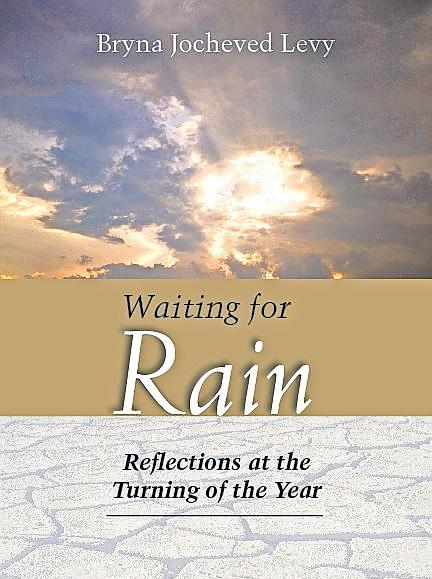
The prayer for rain is discussed by the sages in great halachic detail. The land of Israel was not nourished by great rivers such as the Nile; rather, our holy land had to depend upon seasonal rains to nourish the crops. Lack of rain was seen as a Divine punishment for sin, and Jewish law and ritual provided for many remedies involving prayer to bring forth the desired positive results, namely rain in its proper time.
Levy cites the unusual experience of Rav, the first and greatest of the amora’im, who called for a fast in the wake of a drought. Nothing happened until a simple man came forward and intoned the prayer of “mashiv haru’ach u’morid hageshem,” (He makes the wind blow, He makes the rain fall) and it rained.
Levy relates that upon further inquiry, Rav discovered that this man was a melamed, a simple school teacher. The man described his work to Rav, focusing on his devotion to his students, especially his equal treatment of the poor as well as those from more affluent homes. In addition, Rav learned that this teacher was skilled in assisting those students who were particularly slow in their studies, even those who were “socially incorrigible.” Rav attributed the success of this teacher’s prayers for rain to his manner of teaching. As a teacher, I can relate to this story.
Another ritual of the Sukkot observance in the days of the Temple was the water libations, the simchat beit ha- sho’eiva. The origins of this ritual have baffled scholars for many years. Many opinions abound as to its purpose as well as to its origins. Levy deals with this unusual ritual by citing sources from the Talmud in Sukkot and Rosh Hashanah related to the request for rain.
One source is a little known sugya in Yerushalmi (Shevi’it, 33b) where Rav Abba bar Zavdi claims that the custom originated from the early prophets, who Levy says was Samuel at Mizpah, where a water ritual was performed linked to a prayer for rain and also for salvation. Levy elaborates on the incident and I leave it up to the reader to evaluate it and reach your own conclusion.
The situation alluded to above involved idol worship that had to be remedied with teshuvah. That is Rashi’s interpretation in the Book of Samuel (7:6), regarding the use of water when facing mortality on the battlefield.
Apparently, the use of water as a tool of worship was to reflect upon the fragility of life, whether it be in terms of climate, draught or warfare. Water as a form of worship was not to survive the destruction of the Temple. The true observance of the water libations will have to wait until the coming of Moshiach and the rebuilding of the Temple.
In concluding this segment, Levy offers a contemporary perspective, by relating the situation of the Jews during the time of Samuel to our experiences today.
“Perhaps, we can now appreciate the contemporary relevance of Hoshana Rabbah. Three thousand years after Mizpah, as the reconstituted people of Israel in the commonwealth of Israel reborn, we find ourselves struggling for survival, surrounded by a sea of enemies. Our fate still hangs in the balance. And so we approach Hoshana Rabbah as an opportunity for meaningful religious reflection and fervently pray for redemption: ‘He who answered Samuel at Mizpeh — Answer us’!”
Originally published in 2008.
Continued from page 18
lost the war, still think that they won, although that delusion helped pave the way for the country’s president, Anwar Sadat, to make peace with Israel a few years later.
Correcting the record, at least about Meir, is the objective of the recently released film “Golda,” starring English star Helen Mirren, who portrays the prime minister underneath layers of makeup; a bodysuit; and a prosthetic nose to rival the one worn by Bradley Cooper in his impersonation of Leonard Bernstein in the new film “Maestro.” Adding to the pro-Golda campaign is “Golda Meir”, a biography by historian and current US State Department Special Envoy for Combating Antisemitism Deborah Lipstadt; and “Eighteen Days in October,” a new history on the war by Uri Kaufman.
The project of Israeli film director Guy Nativ, “Golda” limits its scope to Meir’s life during the Yom Kippur War. It benefits from good performances from Mirren and Liev Schreiber, who does a reasonable impression of former US Secretary of State Henry Kissinger, and the rest of a largely Israeli cast. But it comes across more like a heavy-handed cinematic version of a stage play for which one needs to do some serious preparation if you’re not going to get lost in the deluge of details in even this cribbed version of a very complex subject.
Still, it does put across a couple of key points about Meir’s toughness and the strain she suffered as she tried to navigate an unforeseen and potentially existential crisis while undergoing treatment for lymphoma, something that was concealed from the Israeli public. They had no idea that their aged leader was clearly laboring under more handicaps than chain-smoking eight packs of cigarettes a day, blundering advisers and brutal American pressure throughout the crisis. Dayan’s terrible performance under pressure and the way Israeli military intelligence failed the country are also starkly portrayed.
The Lipstadt biography is the polar opposite of the movie. The latest in the Yale University Press “Jewish Lives” series, Lipstadt’s book makes a powerful argument for Meir’s centrality in Zionist and Jewish history.
A highly respected historian of the Holocaust prior to becoming the chief Jewish apologist for the Biden administration, her slim volume does justice to her subject’s complicated life story without engaging in hagiography.
That includes not sparing readers unpleasant details about her personal life, which included a failed marriage; affairs with prominent Labor Zionists like David Remez, who gave her career an important early boost; as well as her rigid partisanship and adherence to a Socialist economic system that had outlived its usefulness long before it was dumped by Meir’s successors 20 years later.
Lipstadt is also critical of Meir’s hostility to feminism (despite her own experiences navigating between career objectives and motherhood) and gives those who consider her too right-wing in her approach to Israel’s security challenges — her statement that “there was no such thing as Palestinians” before 1948 remains controversial but was nevertheless entirely accurate — a full hearing.
Bizarrely, Lipstadt deems the war to be merely “an ignominious end to a storied career,” and devotes a scant six of the book’s 232 pages to a discussion of the conflict that was the crucial event of Meir’s career. That’s an absurd decision that diminishes its value. Anyone who wants a fuller picture of the Israeli leader’s legacy will have to look elsewhere.
Though not a Meir biography and authored by an informed amateur rather than a professional historian, Kaufman’s book makes a much better case for reviving Golda’s reputation.
Utilizing a vast store of original research, including declassified documents from several archives, Kaufman’s portrait of the war is a staggering story of Israeli official incompetence that was eventually overcome by the steady nerves of a few leaders, including Meir, but mostly the heroism of the rank-and-file officers and soldiers of the IDF. After reading it, it’s easy to see why most
Israelis viewed the war as not so much a difficult fight but a damning verdict on the political and military establishment that had run their country without challenge for so long.
That Meir chose not to strike first and fully mobilize Israel’s army before the Egyptians and Syrians attacked for the sake of not alienating the United States was in complete contrast to her past stands in which she almost always disdained those, like her Foreign Minister Abba Eban, who were more worried about international opinion than Israel’s military advantage.
Still, it’s difficult to blame her for succumbing to American pressure at the beginning of the war, given Israel’s dependence on the United States for resupplying arms in the face of the Soviet Union’s full commitment to the Egyptians and Syrians. Lacking any expertise in military affairs, she was also completely dependent on the faltering Dayan and the rest of her advisers, like Military Intelligence Chief Gen. Eli Zeira, whom just about everyone agrees was the most culpable of them all.
Nor is it certain that an Israeli first strike just prior to the war would have worked since, as Israel’s military leaders soon realized, they hadn’t accounted for the ability of their foes to use Soviet missiles that, at least initially, neutralized the IDF’s edge in the air and on the ground with tanks that were equally vulnerable to the new technology. Yet once the Egyptians and Syrians had dissipated the advantage they gained from achieving near complete surprise, the Israelis were able to improvise solutions and eventually achieve military victories.
As the Nativ film and the Kaufman book both persuasively argue, despite mistakes, Meir deserves full credit for ably managing the relationship with a Nixon administration that was ambivalent about Israel as well as riding herd on generals who fought each other as much as the enemy.
Meir’s telling Dayan to “forget about it” — in English, not Hebrew — when, seemingly unhinged, he suggested using Israel’s nuclear weapons, makes clear that it was the 75-year-old woman who was the toughest and most levelheaded person in the cabinet room.
Even Kissinger, who, though no Zionist, was relatively sympathetic to Israel, was prepared to let the war start on the Arabs’ terms and end in such a way as to deny the Jewish state the complete victory its soldiers had earned.
Kissinger’s equivocal role in the war is also a subject of unending debate. He may have facilitated and ensured Israel’s resupply of arms that were necessary to sustain its defense; however, he also ruthlessly exploited that dependence to achieve his own objectives. He made a crucial blunder of his own that rivals any of those made by either side in the fighting. Kissinger’s failure to use his rescuing of Egypt’s doomed Third Army in the last days of the war to force the Saudis to renounce the Arab oil boycott of the West that had a devastating impact on the lives of ordinary Americans.
But in remembering the Yom Kippur War, restoring Golda Meir’s image is far from the most important issue. The main lesson is rejecting overconfidence and the contempt for their enemies that convinced Israel’s leaders that a surprise attack was impossible. Equally as important is avoiding ever being put in a position again where Israel’s security is dependent on the sometimes dubious goodwill of other nations.
Fifty years later, Israel is in a far stronger position than it was on Yom Kippur 1973 for a great many reasons. Still, it continues to face pressure from friends as well as foes — like a potentially nuclear Iran.
Meir had many shortcomings, and it’s unlikely that the generation that lived through that crisis will ever be persuaded to forgive her. But her successors would do well to emulate her cynicism about the world and the necessity for selfreliance.
Though some dismiss her attitudes as relics of a bygone era of Tsarist oppression and the Holocaust, Meir’s relentless insistence on defending her country’s interests — and, wherever possible, preferring tangible strategic assets to the sympathy of an international community that is just as unsympathetic to Israel today as it was a halfcentury ago —makes just as much sense now as it did then.














